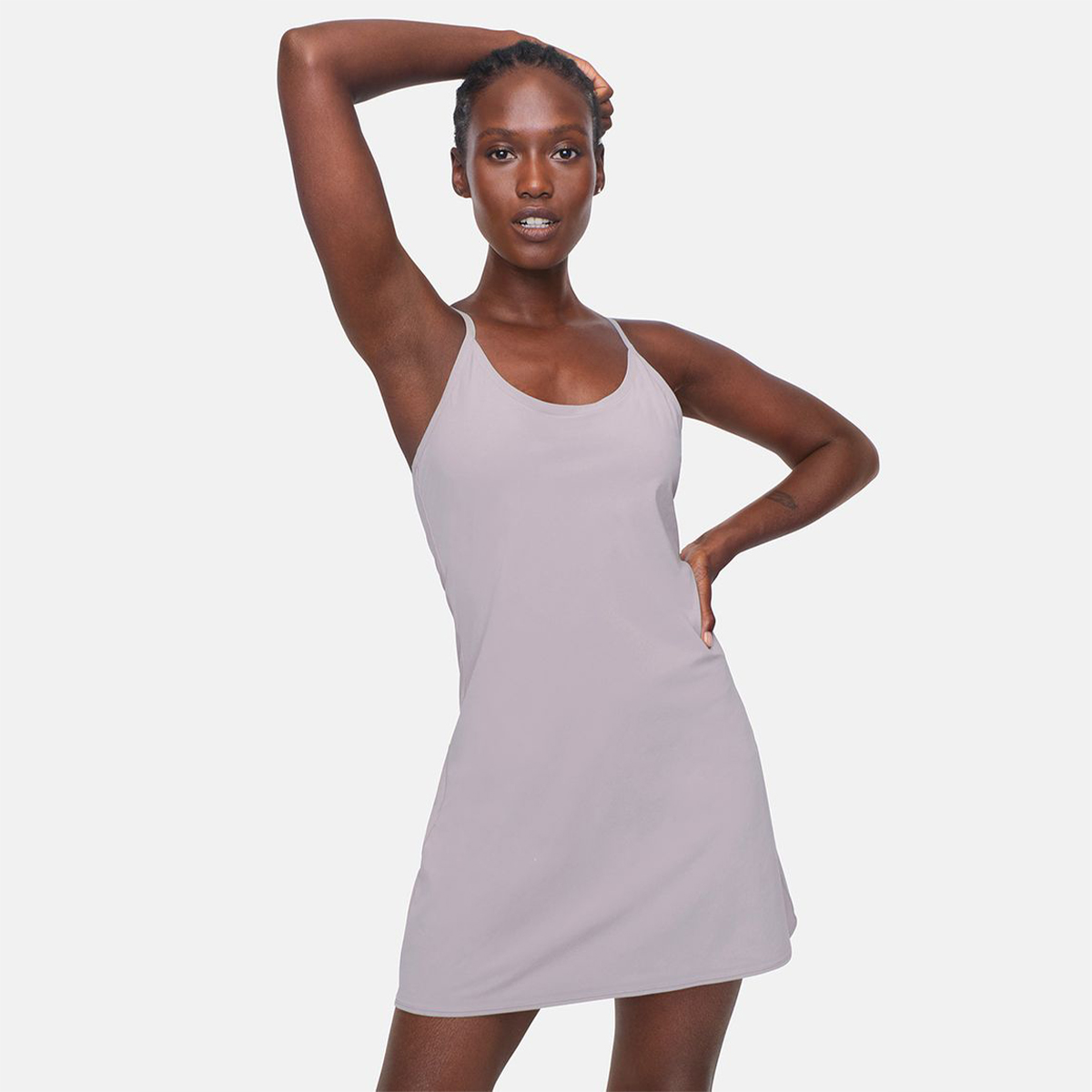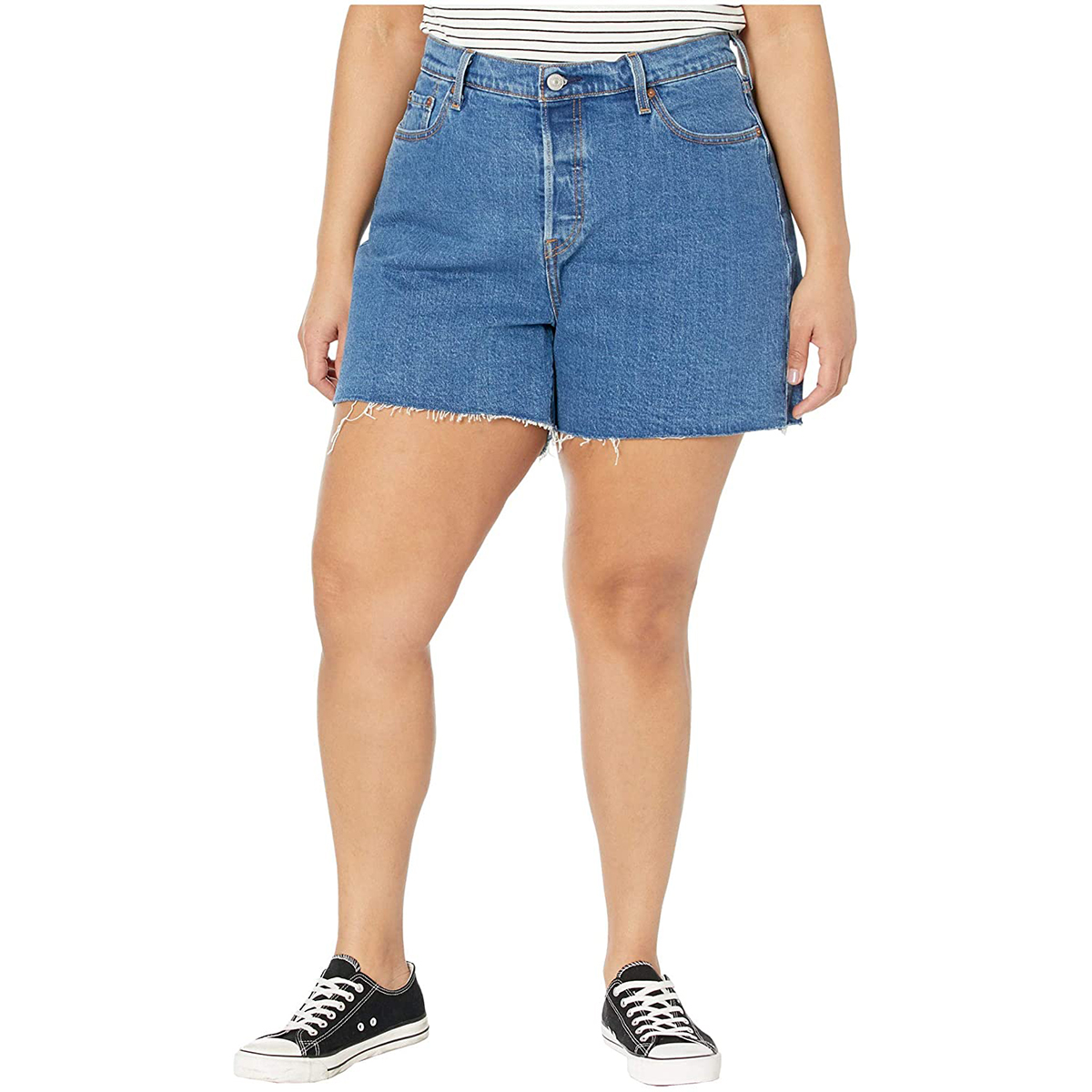How to Shop for Well-Made Clothes Online

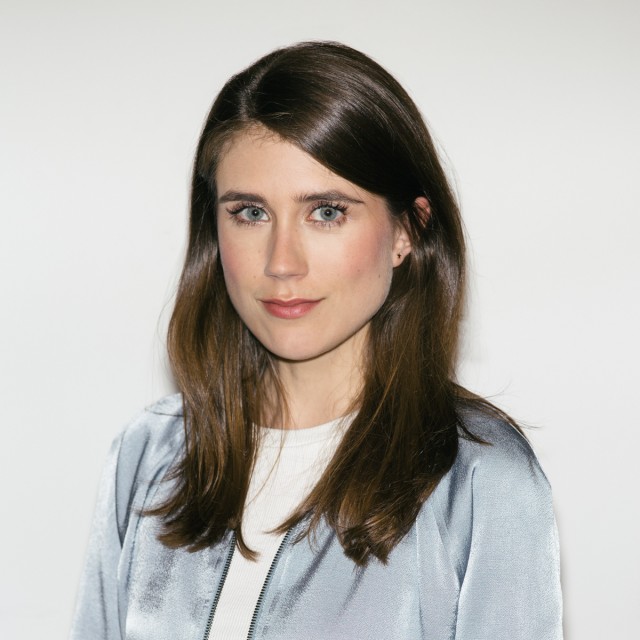
Online shopping has come a very long way since it first became a thing in the early '90s. You may recall that the major players back then were pretty much just eBay and Amazon (which was a book retailer at the time). Fast-forward to today and practically every fashion business has an online component, save for a few holdouts (the most noteworthy being Chanel).
Even before the COVID-19 pandemic took hold of the world, the shift from traditional brick-and-mortar retail to e-commerce has been one of the fashion industry's biggest talking points. If you grew up going to malls every weekend, you probably never thought you'd see the day when a department store as storied as Barneys New York would cease to exist, but here we are.
Whether or not you were comfortable with shopping online for clothes before 2020, the pandemic has pretty much forced it upon you, at least for the time being. According to a new survey of U.S. shoppers done by Top Data, 73.5% of those surveyed reported that they're shopping online more now than they did prior to the pandemic, and 88% said they'll continue to shop online more even after a cure or vaccine is discovered.
As a digital fashion editor, I'm very comfortable with online shopping, but I didn't get that way overnight, and I've had my fair share of hits and misses. It's very easy to just order something that looks cute on the model, but there's so much more to consider. To name a few, you have fabric, sizing measurements, return policies, and sustainability measures the brand in question is taking. Shopping for well-made clothes without the luxury of being able to touch them and try them on IRL can be sneakily overwhelming, so I reached out to a few experts to help me explain how to become as skilled at online shopping as they are.
Read on for the best tips that founders of Sustainable Brooklyn Dominique Drakeford and Whitney McGuire, digital content creator Tacha John, and textile expert Deborah E. Young have to offer, and shop stylish, well-made pieces.
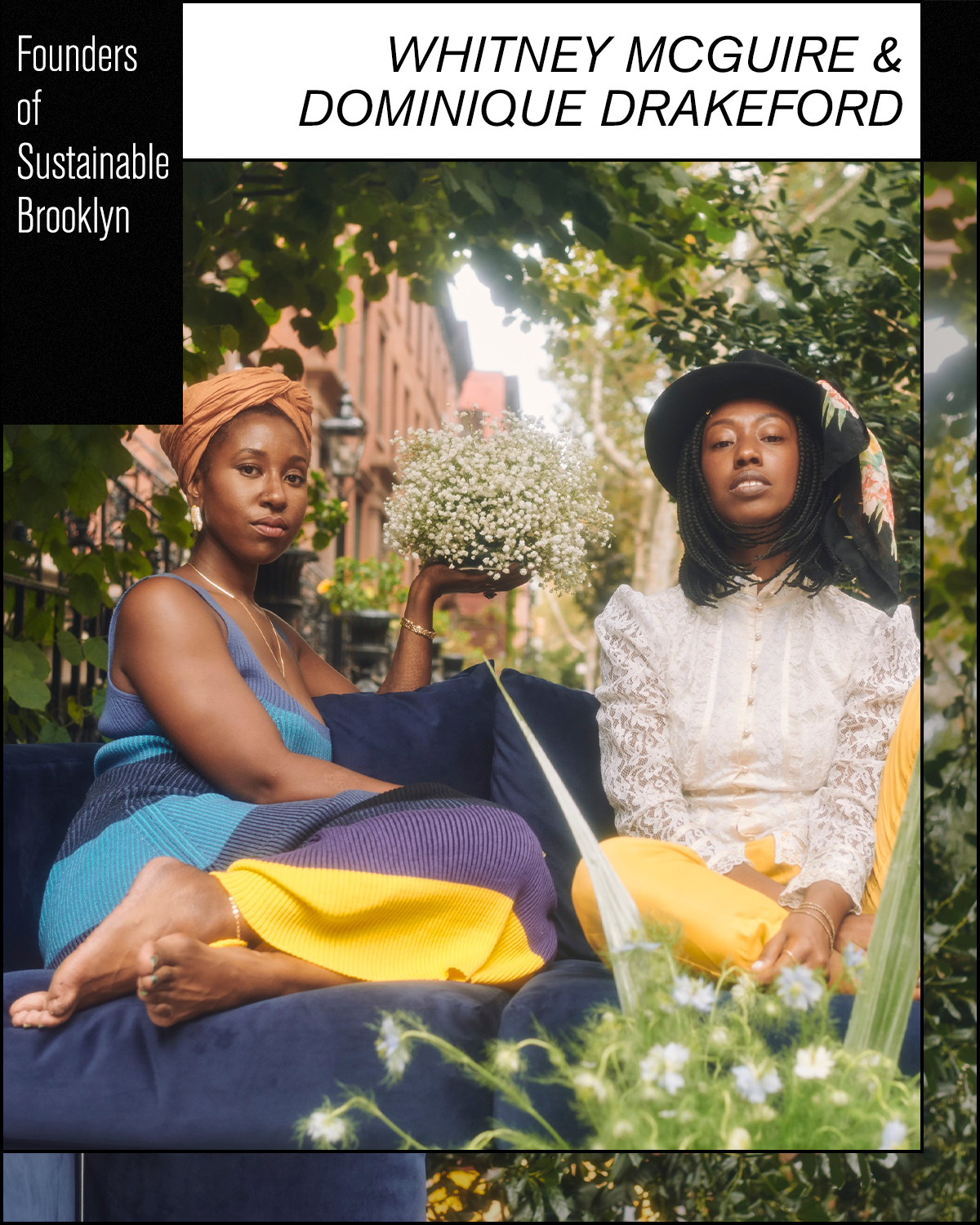
Whitney McGuire and Dominique Drakeford founded Sustainable Brooklyn for a much-needed reason: "to bridge gaps between the sustainability movement and targeted communities through various modalities, including education and events." Their mission to promote sustainability is about more than just fashion, but as we know, the environment isn't going to improve without drastic changes in the fashion industry.
Whitney and Dominique's Top 3 Online-Shopping Tips
1. "Connect with your circle of influence to see if friends or family have purchased from the brand in the past. That way you can ask a direct customer very specific questions and even do a video call to see how it fits on them."
2. "Read the specs of the garment. Pay close attention to type of material and other details explaining how the garment was made and understanding the craftmanship."
3. "Between the website and social media, look at as many photos as possible on different body types. It's a lot more helpful if a garment has multiple photos with different angles and details."
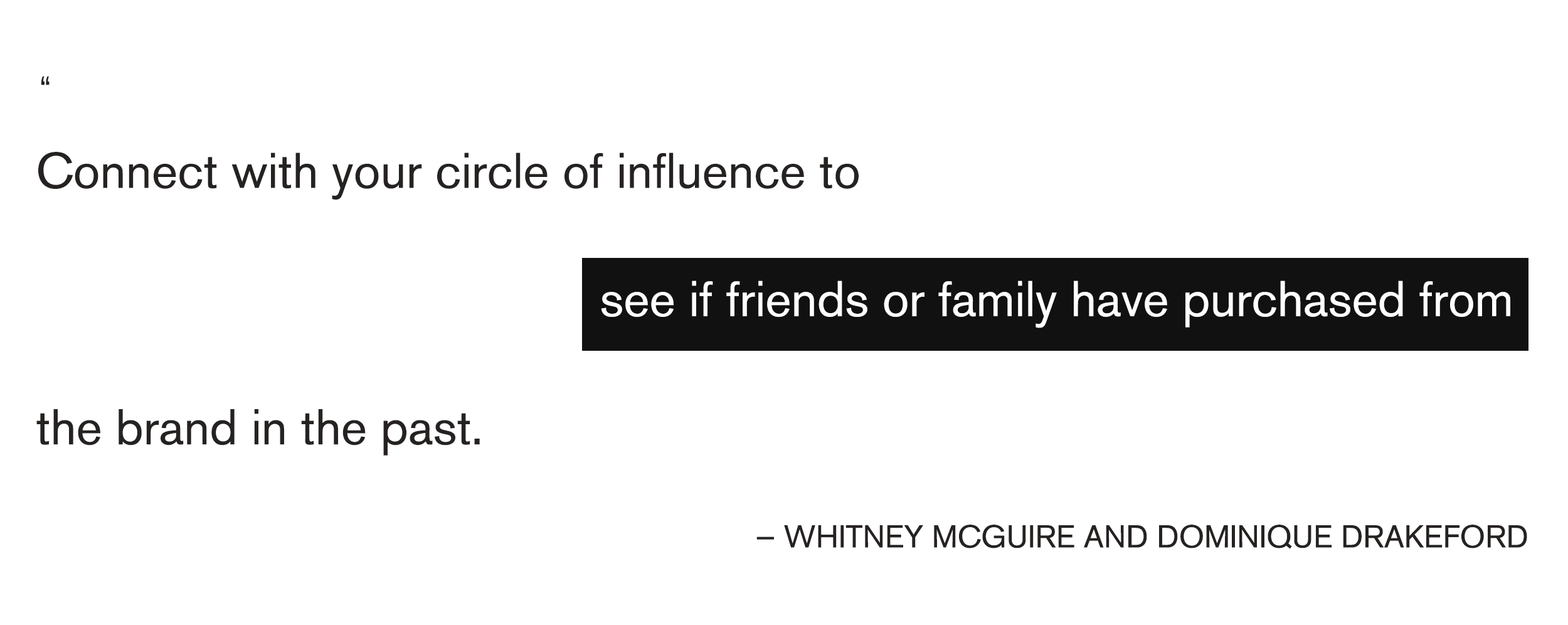
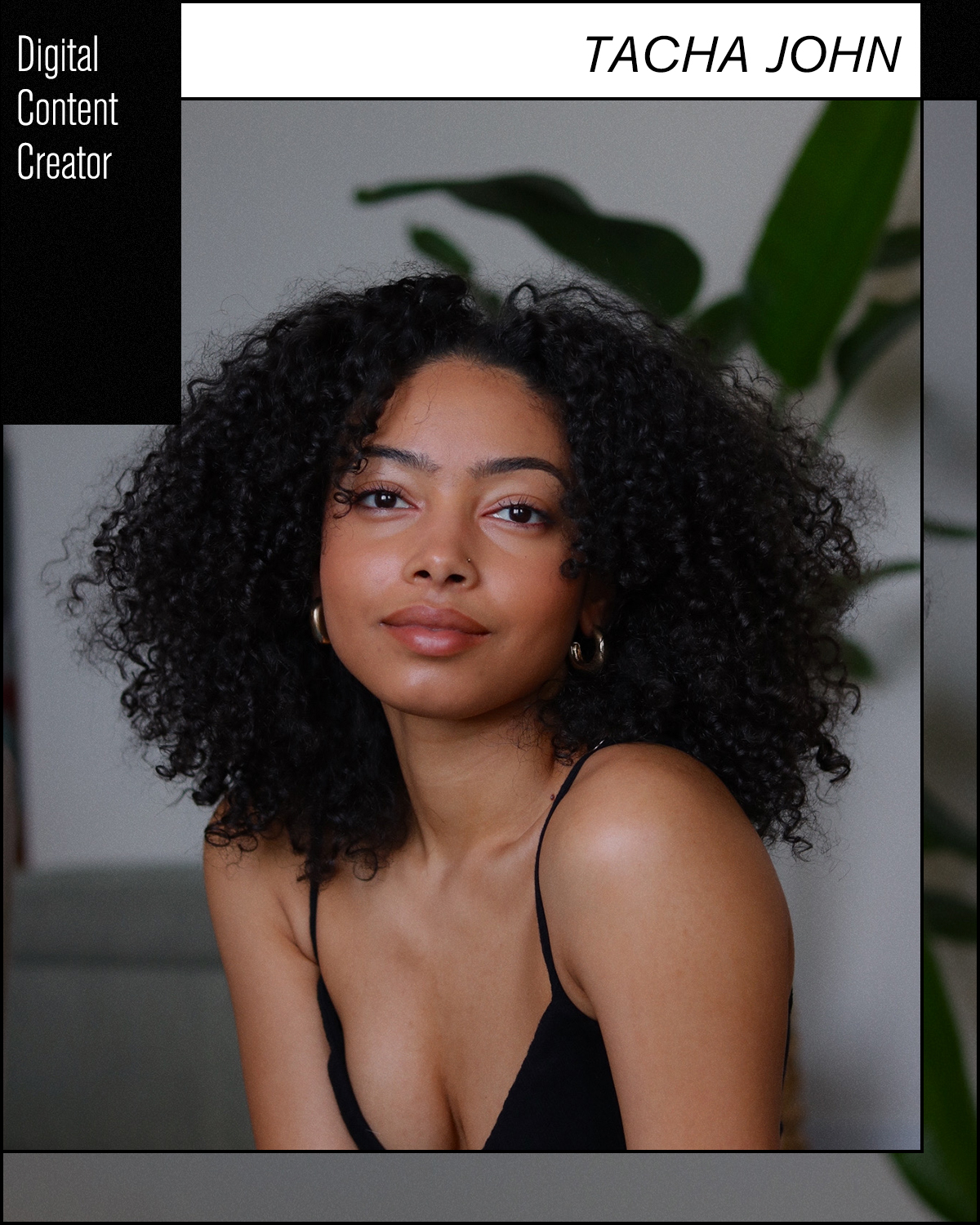
Tacha John (aka Tacha J) has a digital platform that encompasses fashion, beauty, wellness, and lifestyle. When I reached out to her for input on this piece, she told me that she started the year sharing her commitment to shopping more high-quality, long-lasting pieces, so I'd clearly gone to the right place.
Tacha's Top 3 Online-Shopping Tips
1. "Read the reviews! These usually have tons of useful insight on how the item fits, its quality, and other notes that might come in handy when considering a purchase. Sometimes you'll even find customer photos so you can see how an item fits on the average person, which can help avoid being misled."
2. "Don't be afraid to splurge. While it isn't always true that affordable clothing isn't high-quality or well-made, when shopping for a clothing item that you plan to have for a long time, giving yourself a slightly bigger budget can mean that you're able to invest in something that will stand the test of time. It'll also save you time and money in the long run from needing to replace the same item over and over because the cheaper alternative is only good for a few months."
3. "Check the fabric! Since you're online shopping and not able to feel an item before making the decision to purchase, knowing what a piece of clothing is made from is super important! This will give you insight into things like stretch and helps to avoid the trap of buying a sweater that looks cozy only to receive it and find that it's actually super scratchy."

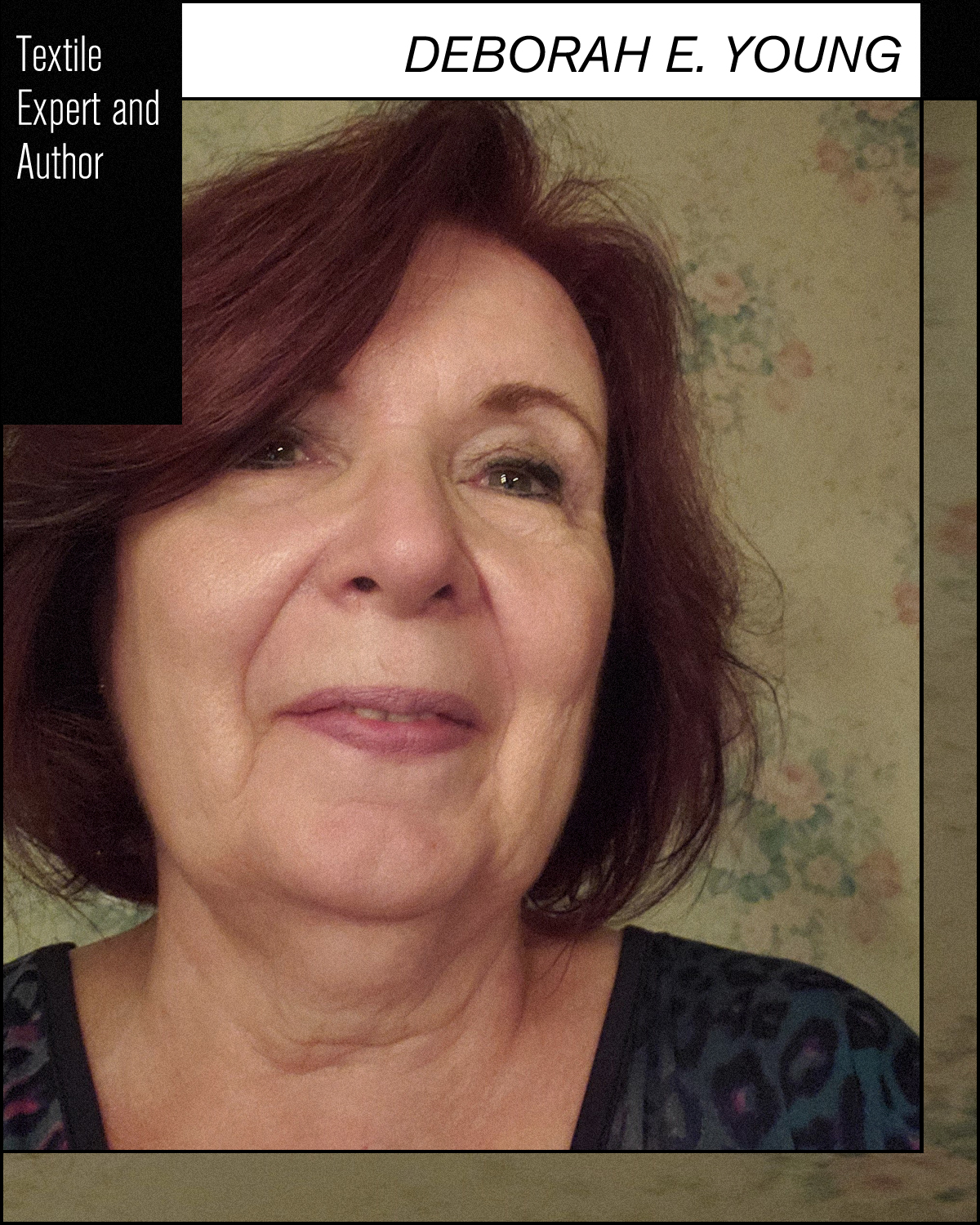
Having written two fabric-swatch reference guides, served as a textile consultant and expert witness, and worked as a textile educator at institutions including FIDM for 25 years, Deborah E. Young has a knowledge of clothing fabrics that's as vast as it gets. In addition to her shopping tips, she also shared her expertise on the highest-quality clothing fabrics, which we turned into a handy guide.
Deborah's Top 3 Online-Shopping Tips
1. "Read between the lines. Note what they are not telling you! If fiber content is missing, assume synthetic. If fiber is vague, such as microfiber (which is not fiber—it is an adjective indicating very tiny fibers), assume synthetic. There are no natural microfibers."
2. "Look for easy returns. These companies want your business enough to put up with the expensive process of returns, restocking, damages, shipping costs. This practice is so prevalent that we expect easy returns (led by the online giant, Amazon), but it is not a universal practice."
3. "Cheap garments aren't cheap. Look for timeless pieces to save the planet, avoiding fast fashion and overfull landfills."
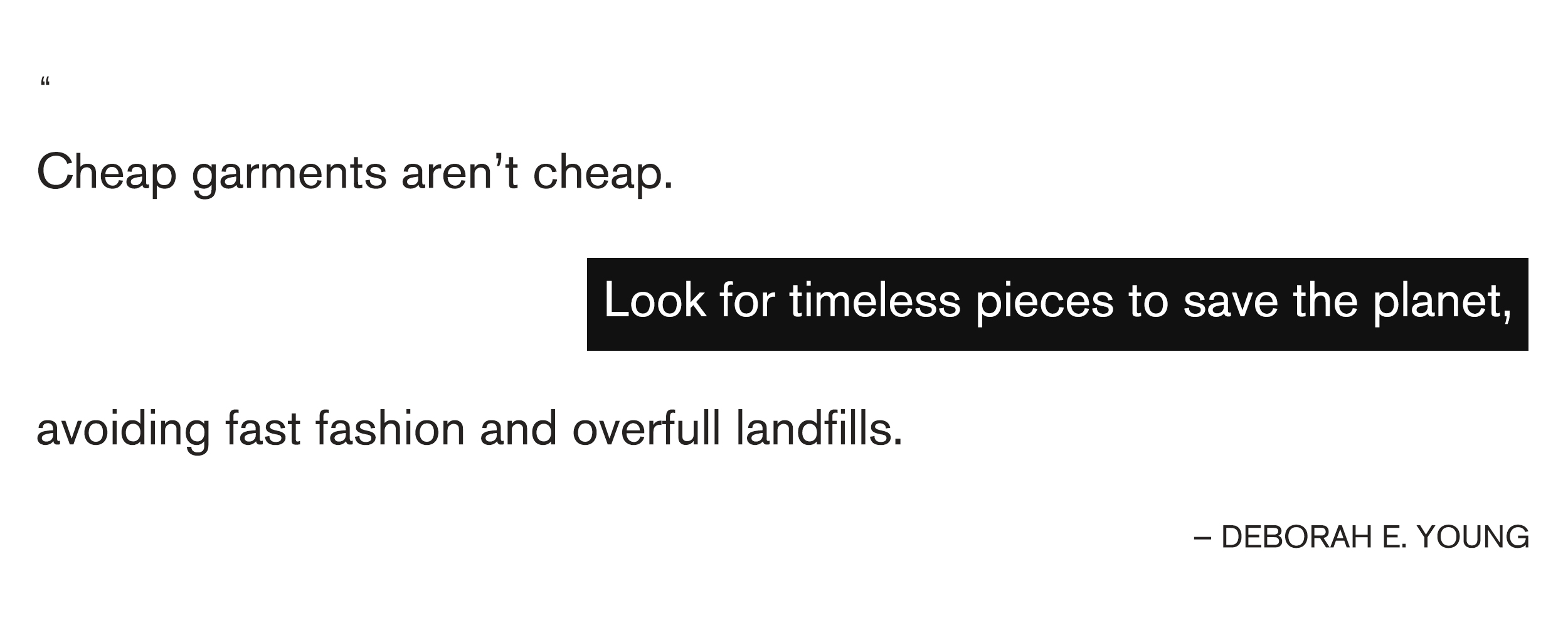
Deborah E. Young's Clothing Fabric One-Sheet
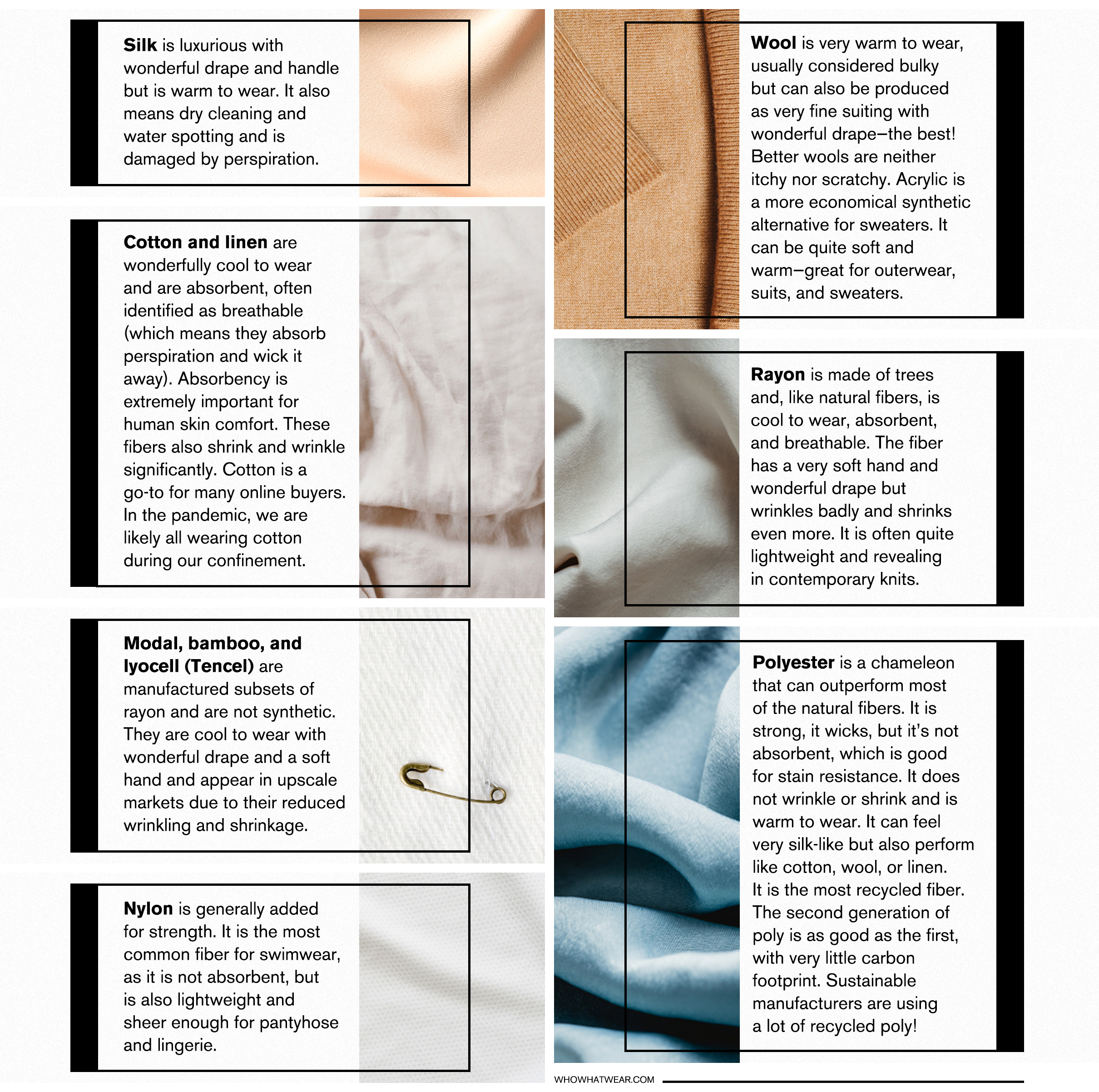
Shop Well-Made, Sustainable Pieces
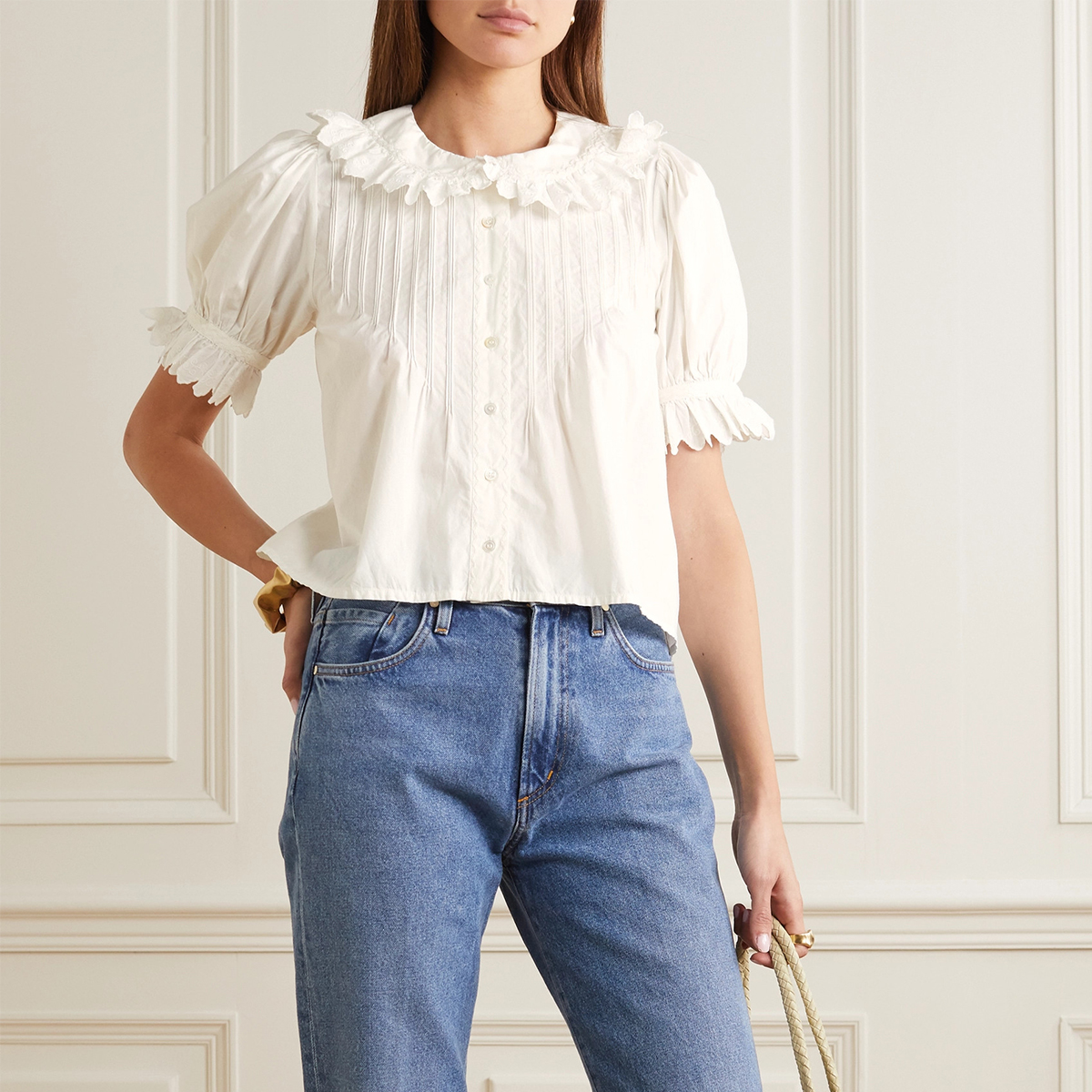
This pretty 100% cotton blouse is for wearing on its own now and under a sweater in a few months.
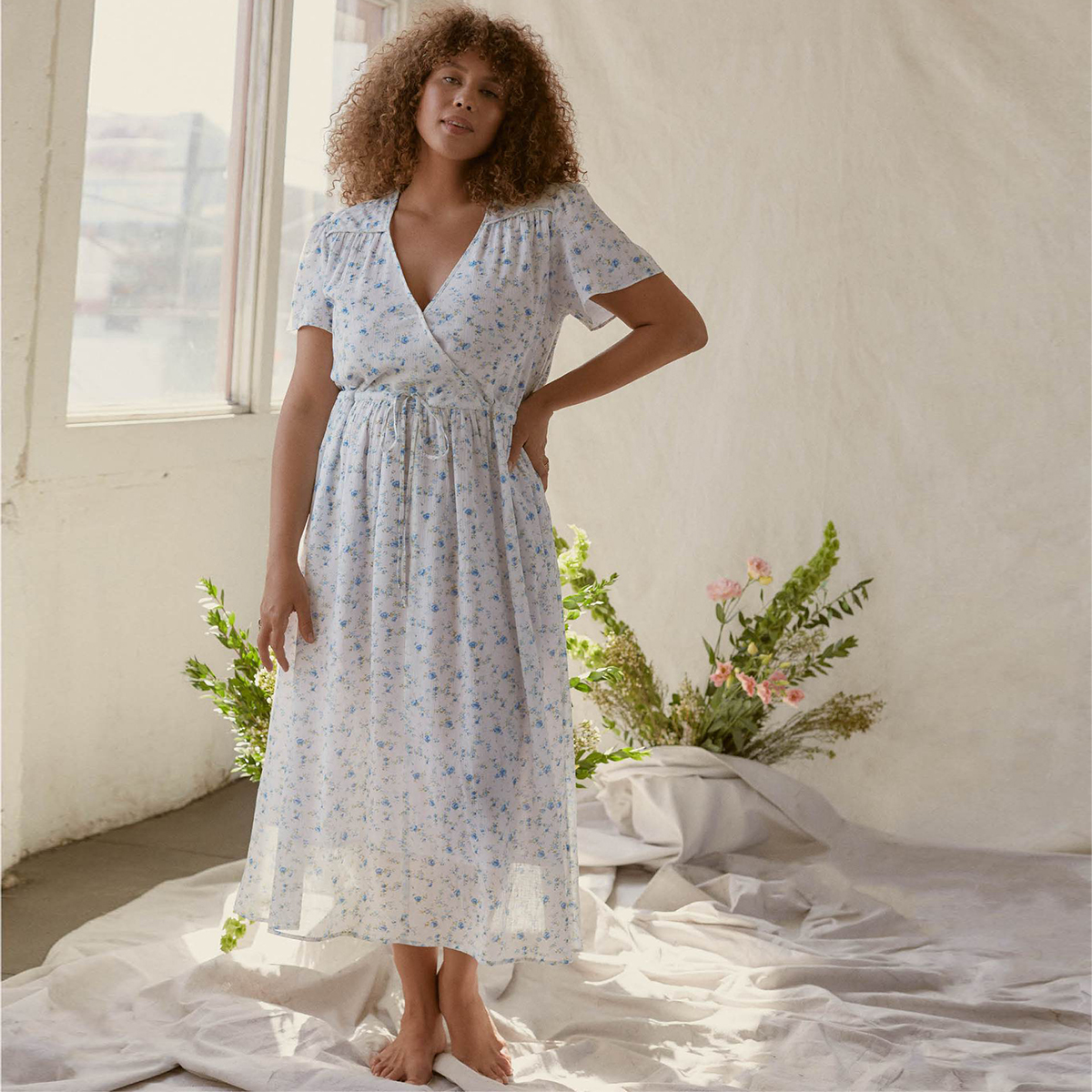
When it comes to beautiful, sustainable dresses, the first brand that comes to my mind is Christy Dawn.
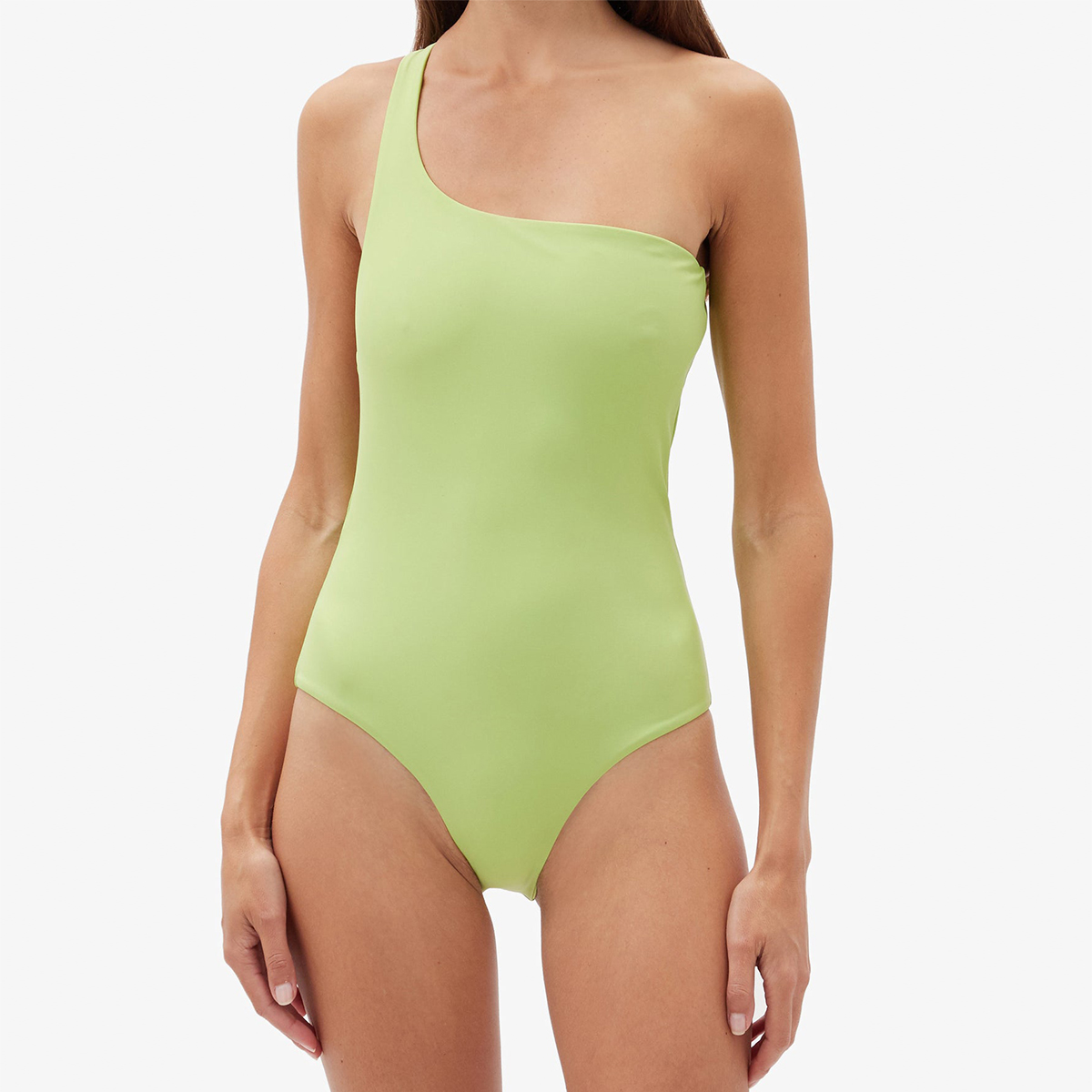
Jade Swim has quickly become the go-to in sleek, minimal, eco-friendly swimwear.
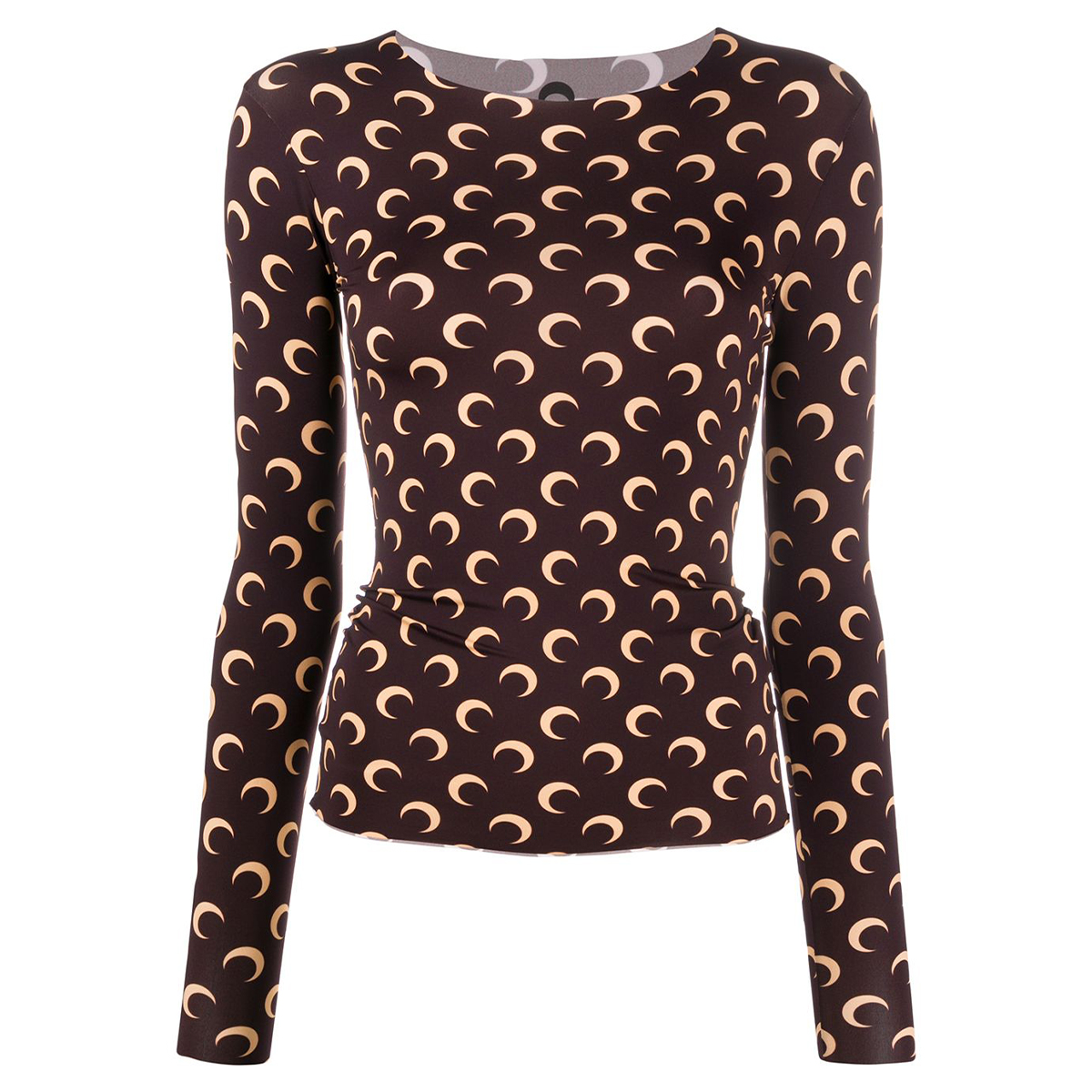
Not only is Marine Serre the reigning It brand, it's sustainable.
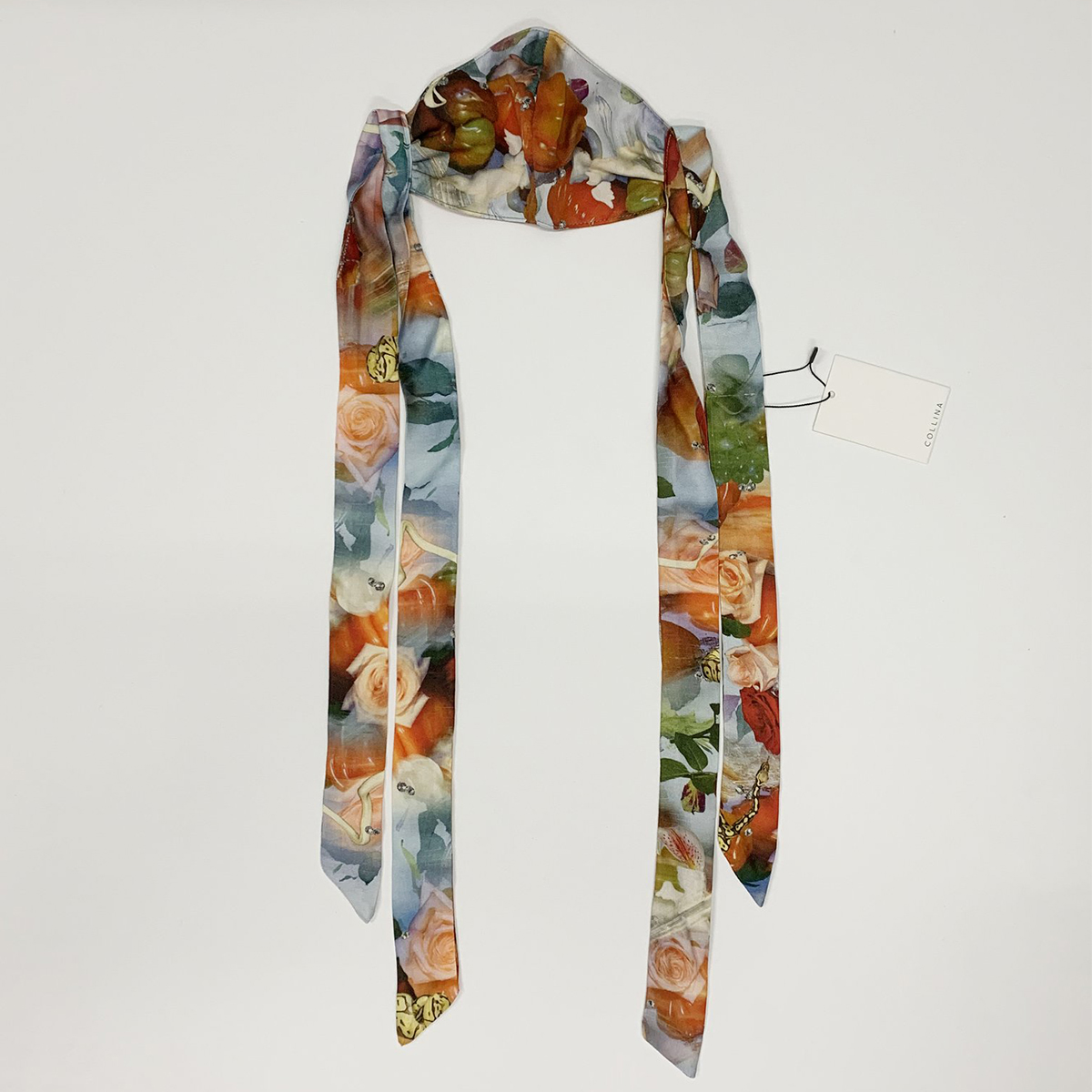
Collina Strada calls itself "a platform for climate awareness, social awareness, change, and self-expression." This eye-catching mask was made of deadstock fabric.
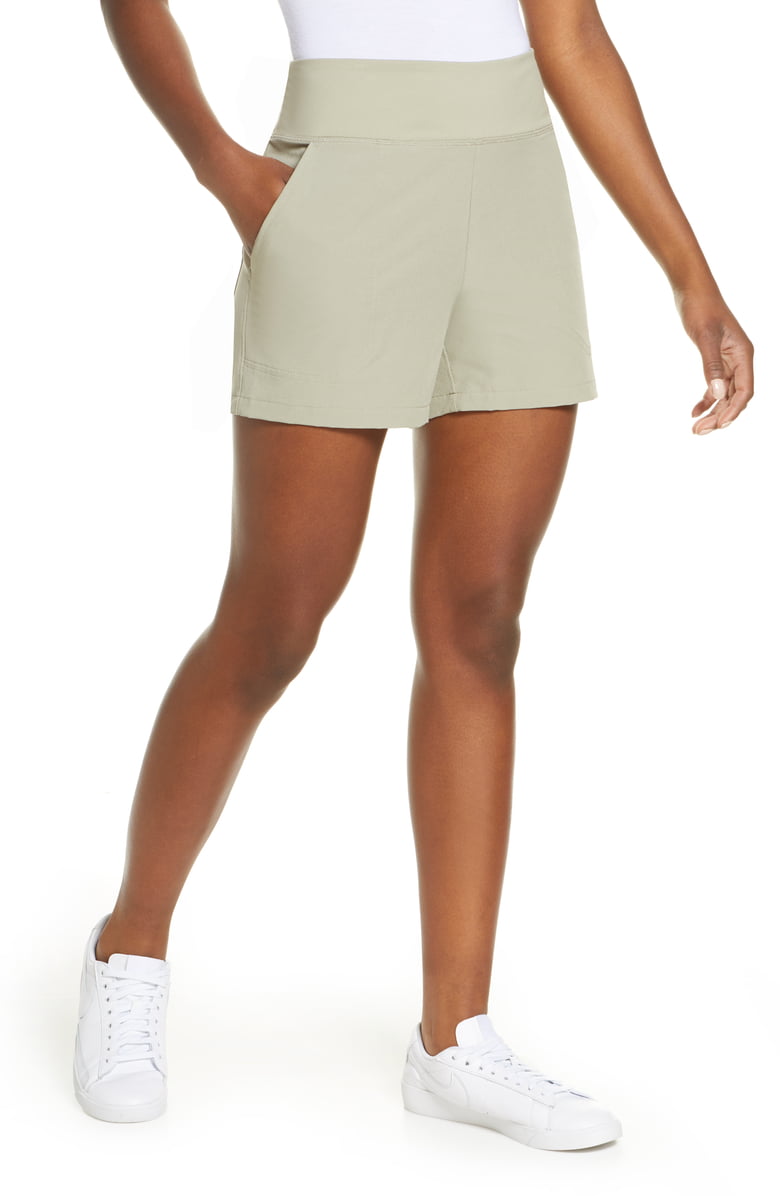
The Patagonia logo will always be cool, as the brand paved the way for sustainability in fashion.
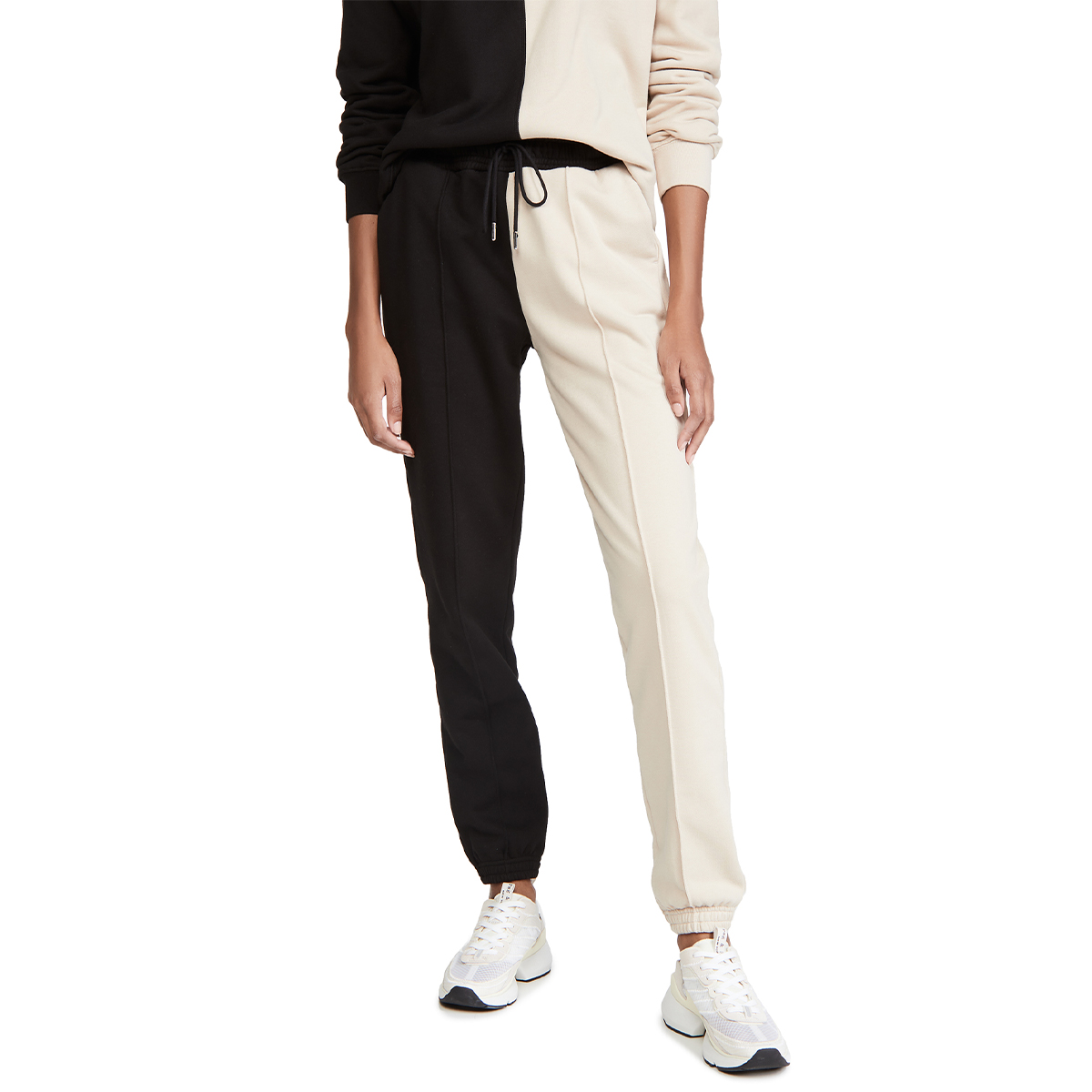
This brand shares 90% of its profits with charitable causes and those who make its collection happen. Hence the name.
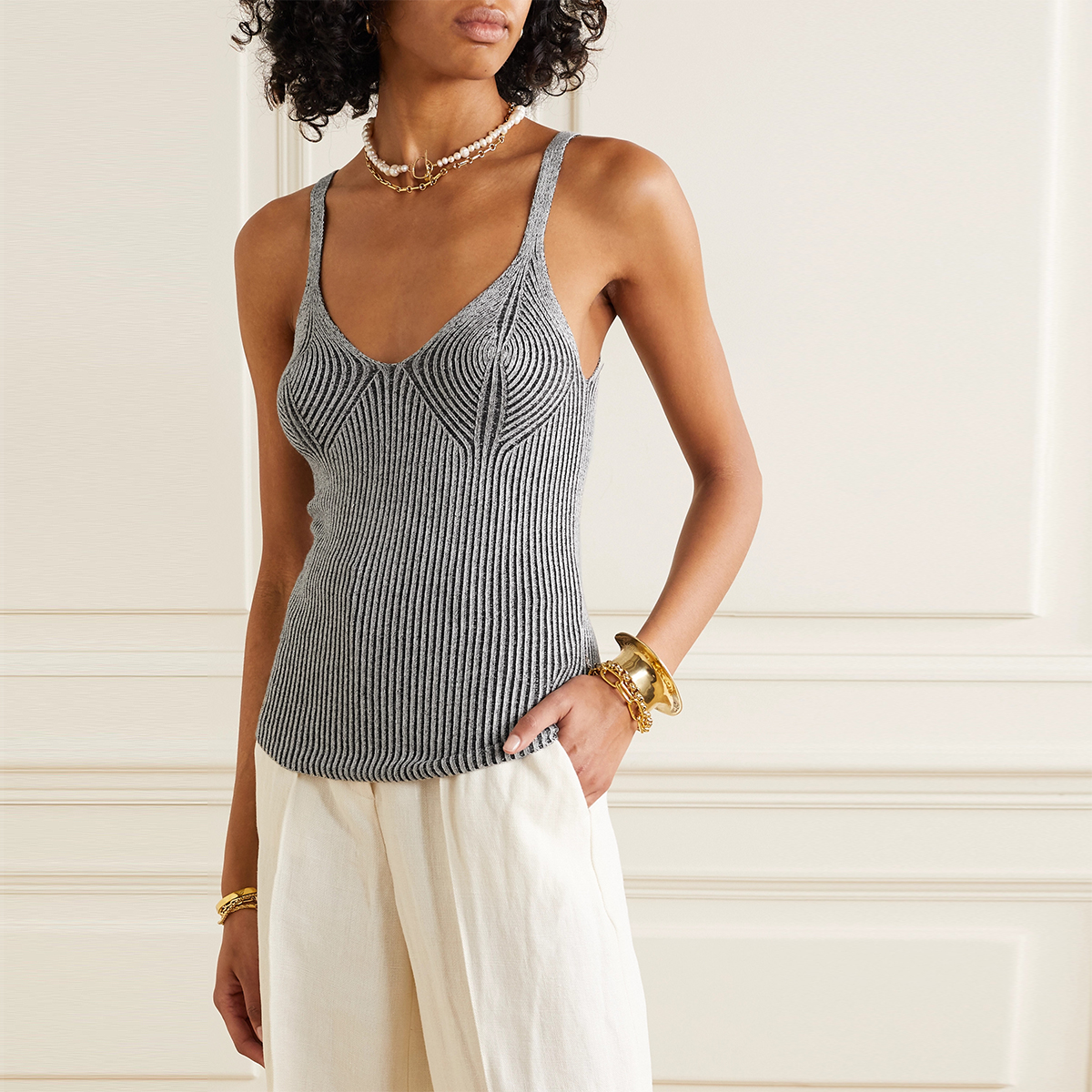
Not only is it sustainable and perfect for every season and occasion, but it's also majorly marked down.
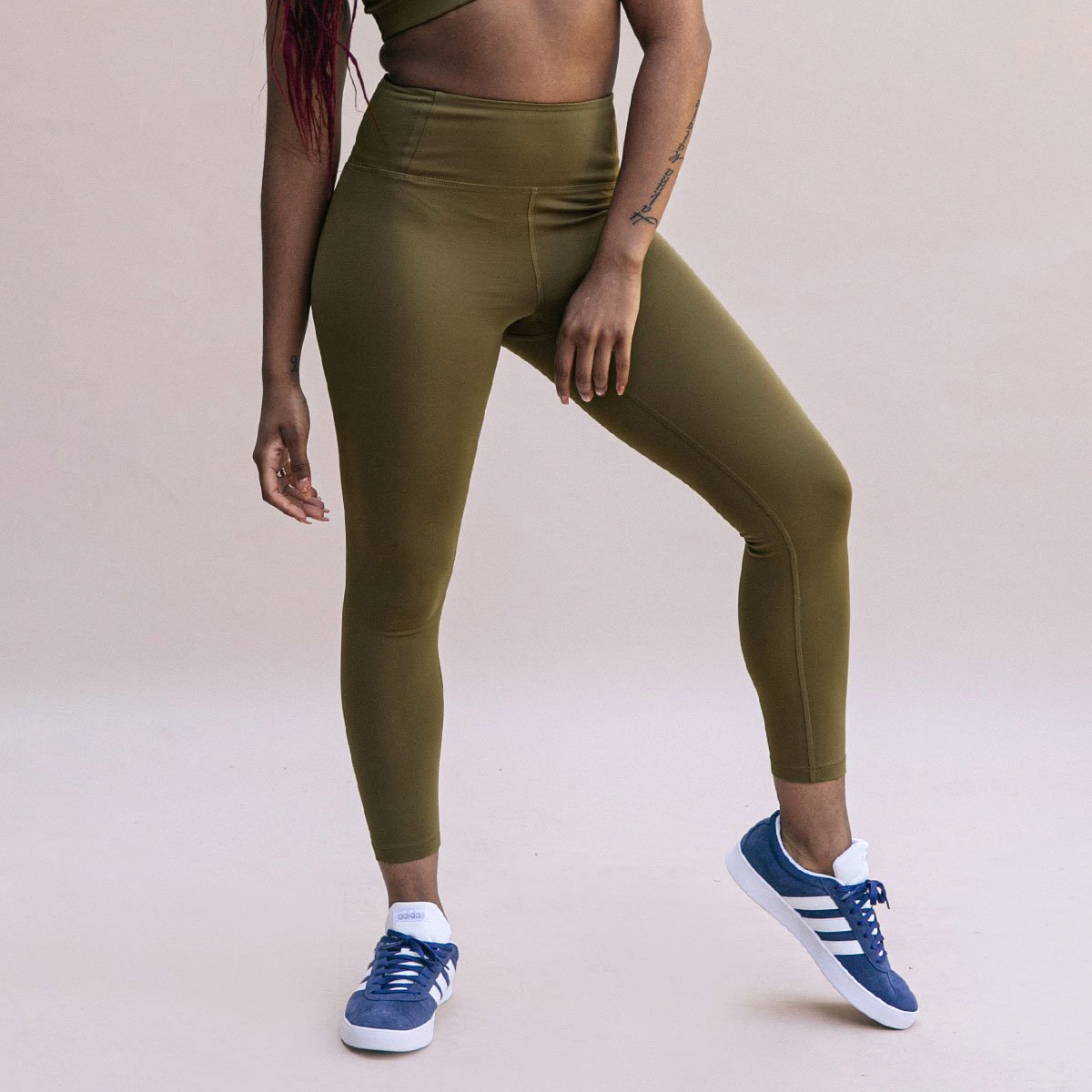
In case you haven't heard, 90% of these popular leggings are made of recycled plastic bottles.
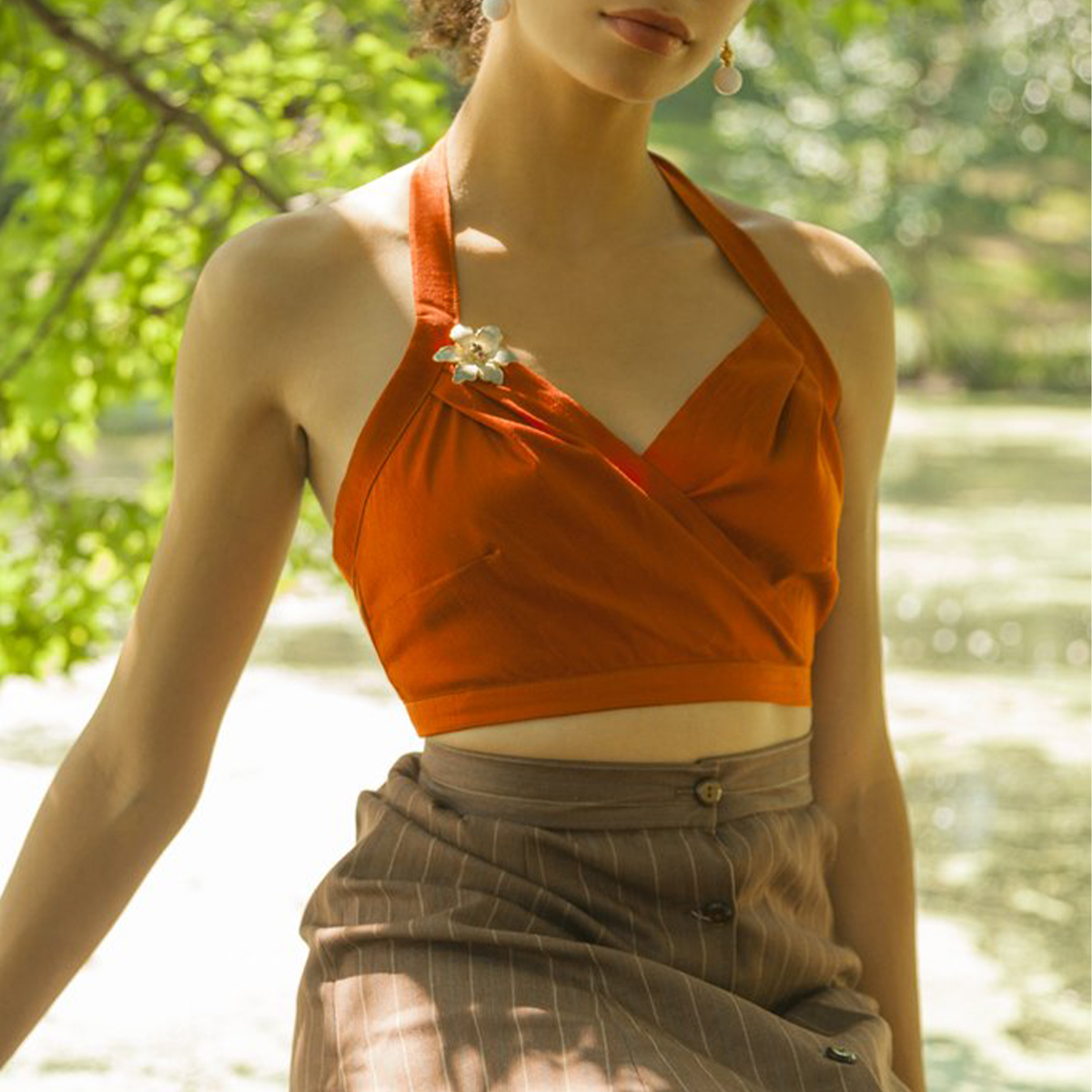
This brand was founded by the world's most stylish mother-daughter duo, and 100% of the pieces are made in Los Angeles.
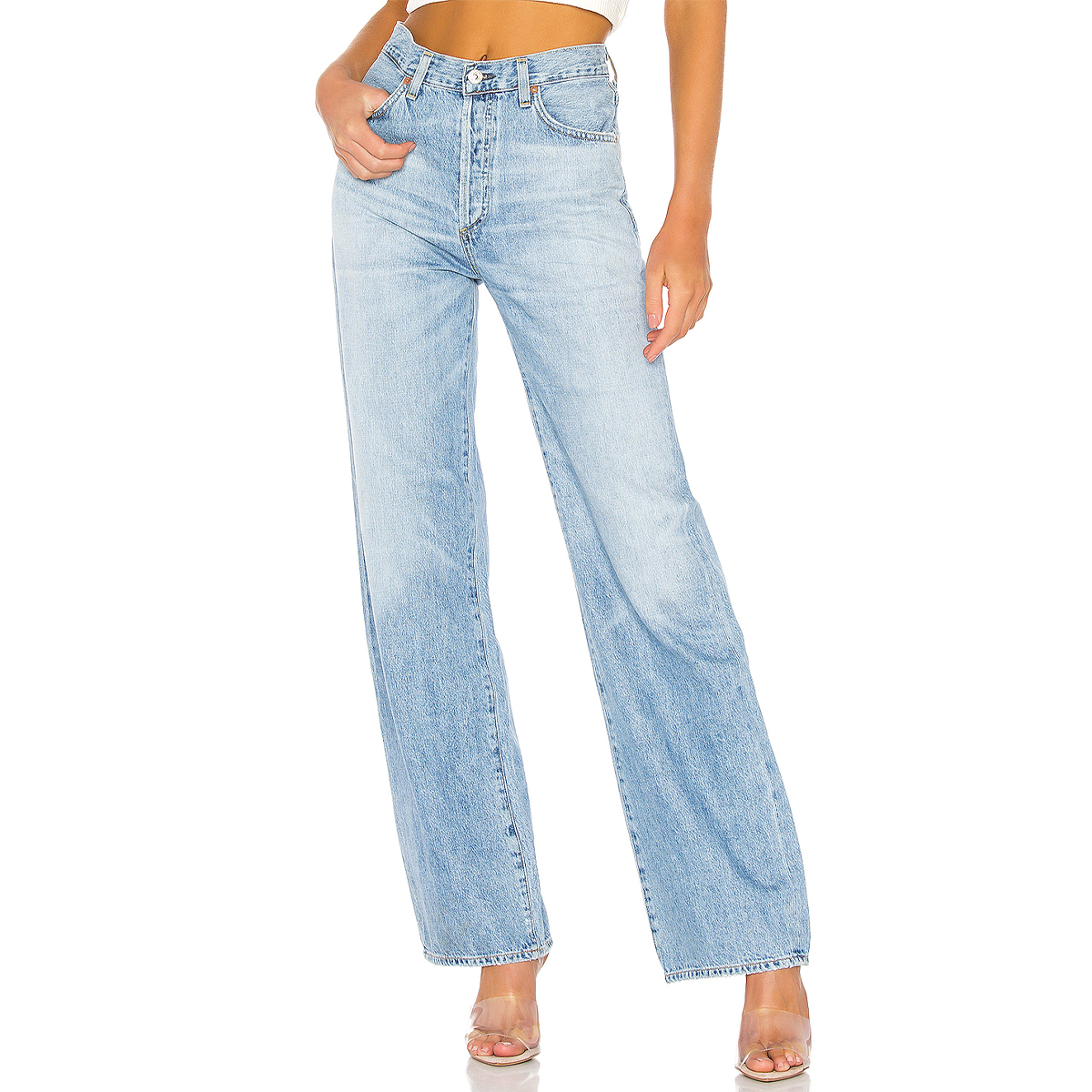
Citizens of Humanity has been implementing sustainable practices ever since the brand was founded in 2003, and it never ceases to set denim trends while it's at it.
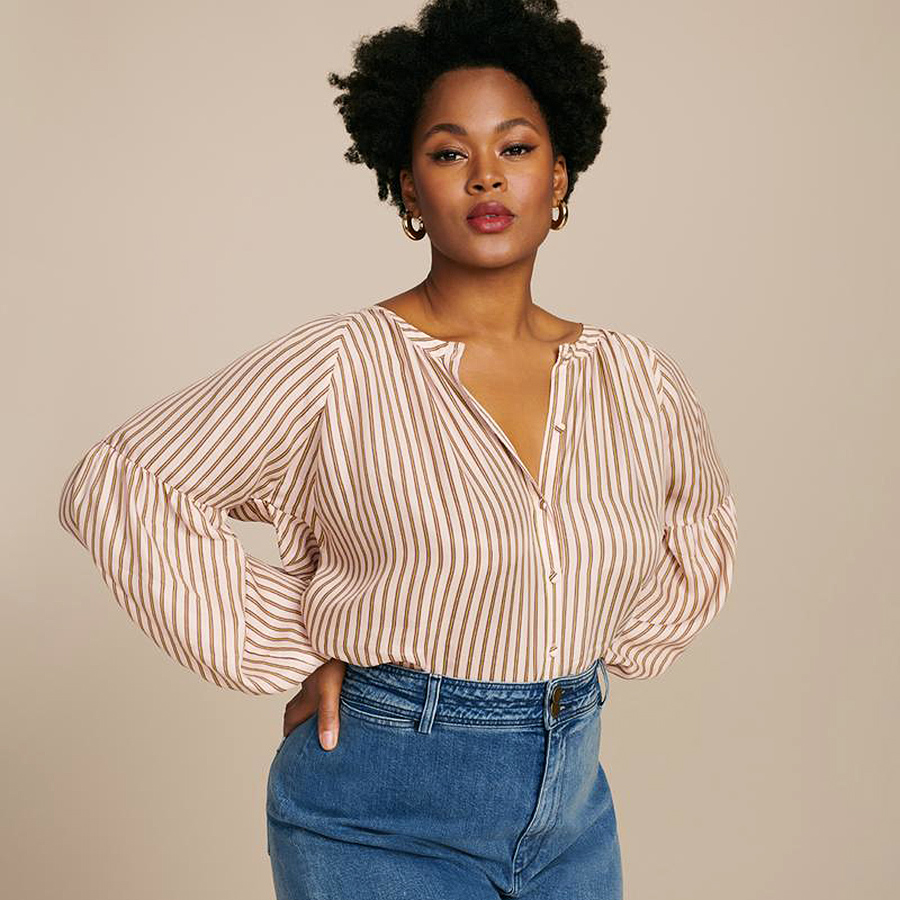
This perfect top is made of 100% cupro. Fun fact: It's a waste product of cotton and feels like silk.
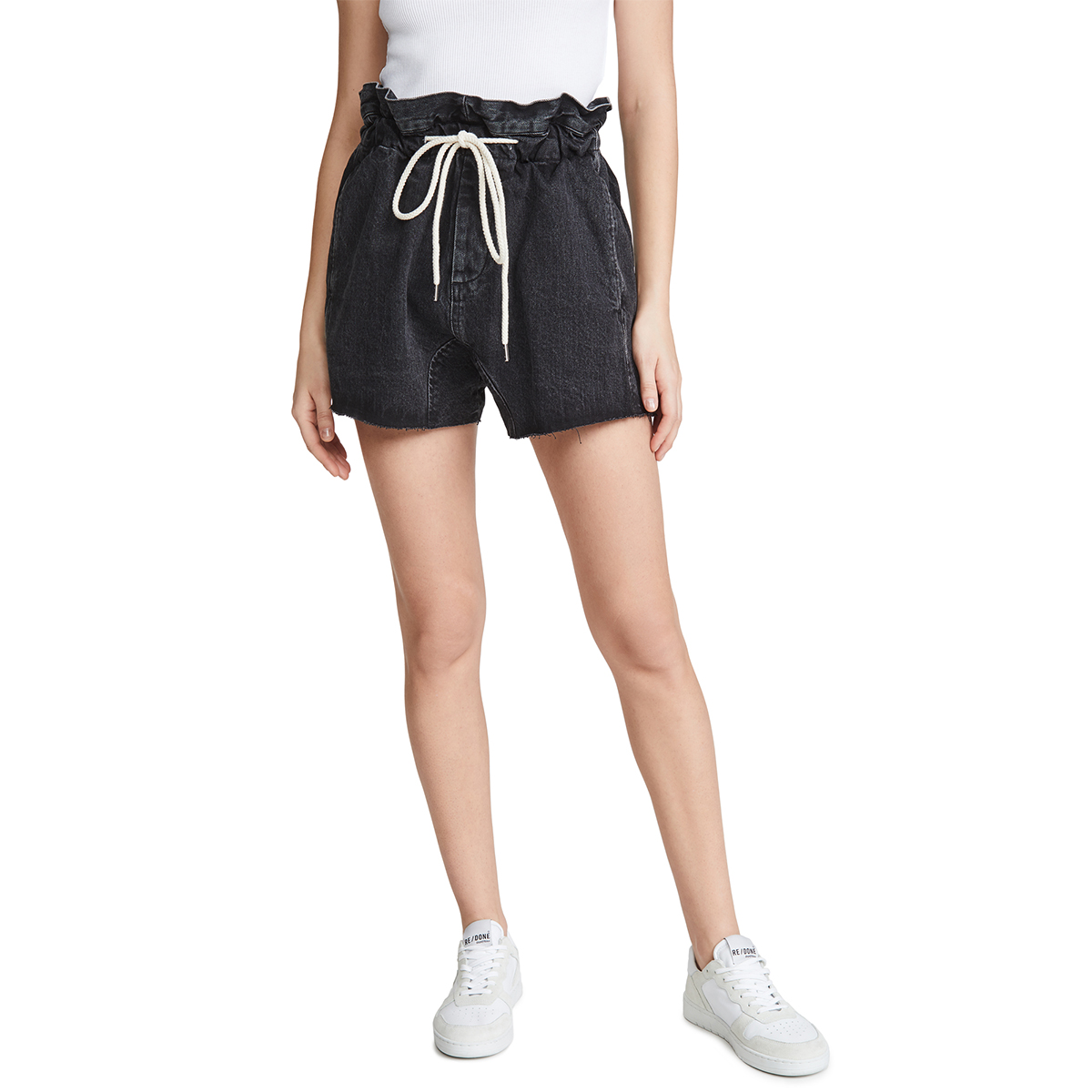
This under-the-radar sustainable Australian brand (get to know it here) makes the best casual shorts.
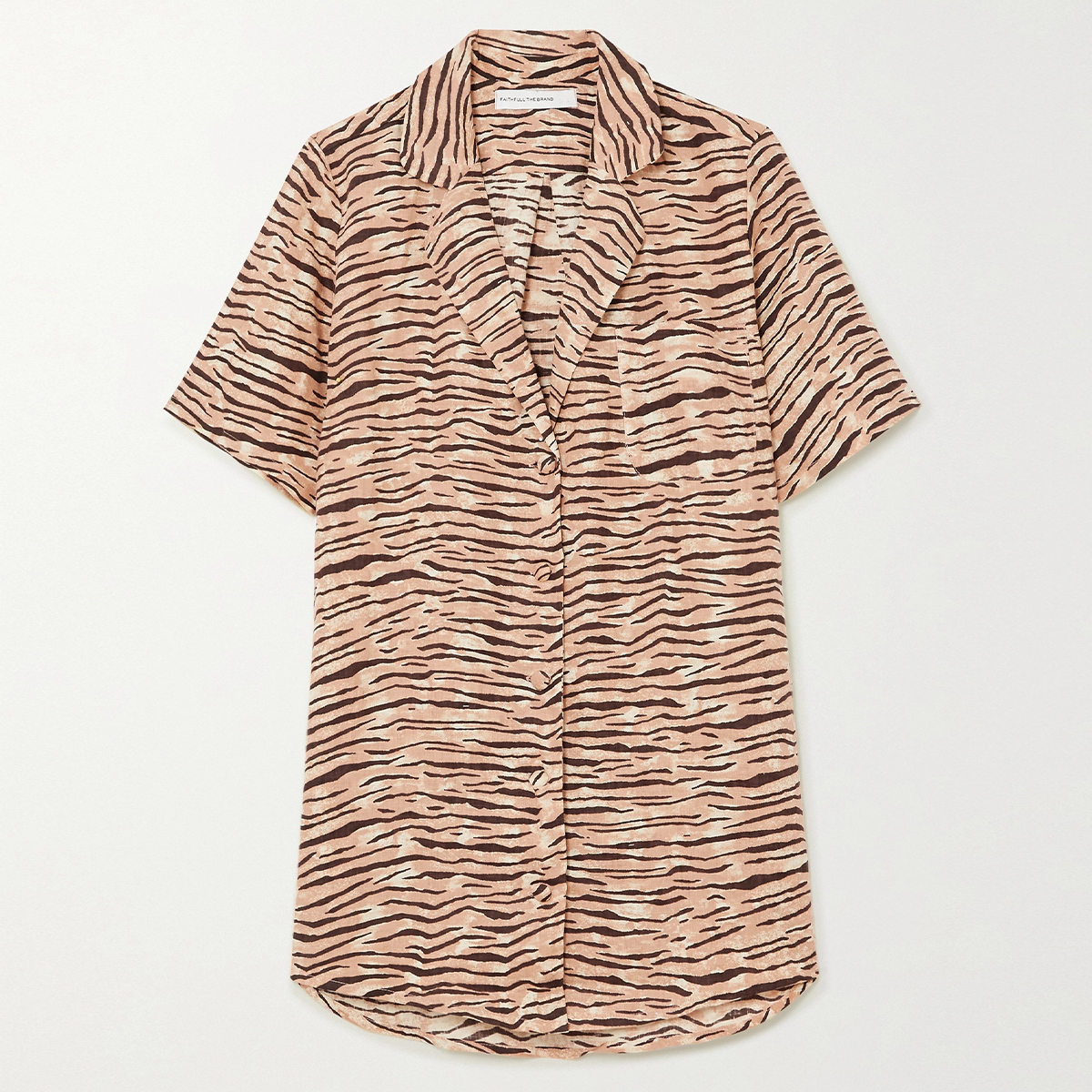
Made in Bali and perfect for summer, just like all things Faithfull the Brand.
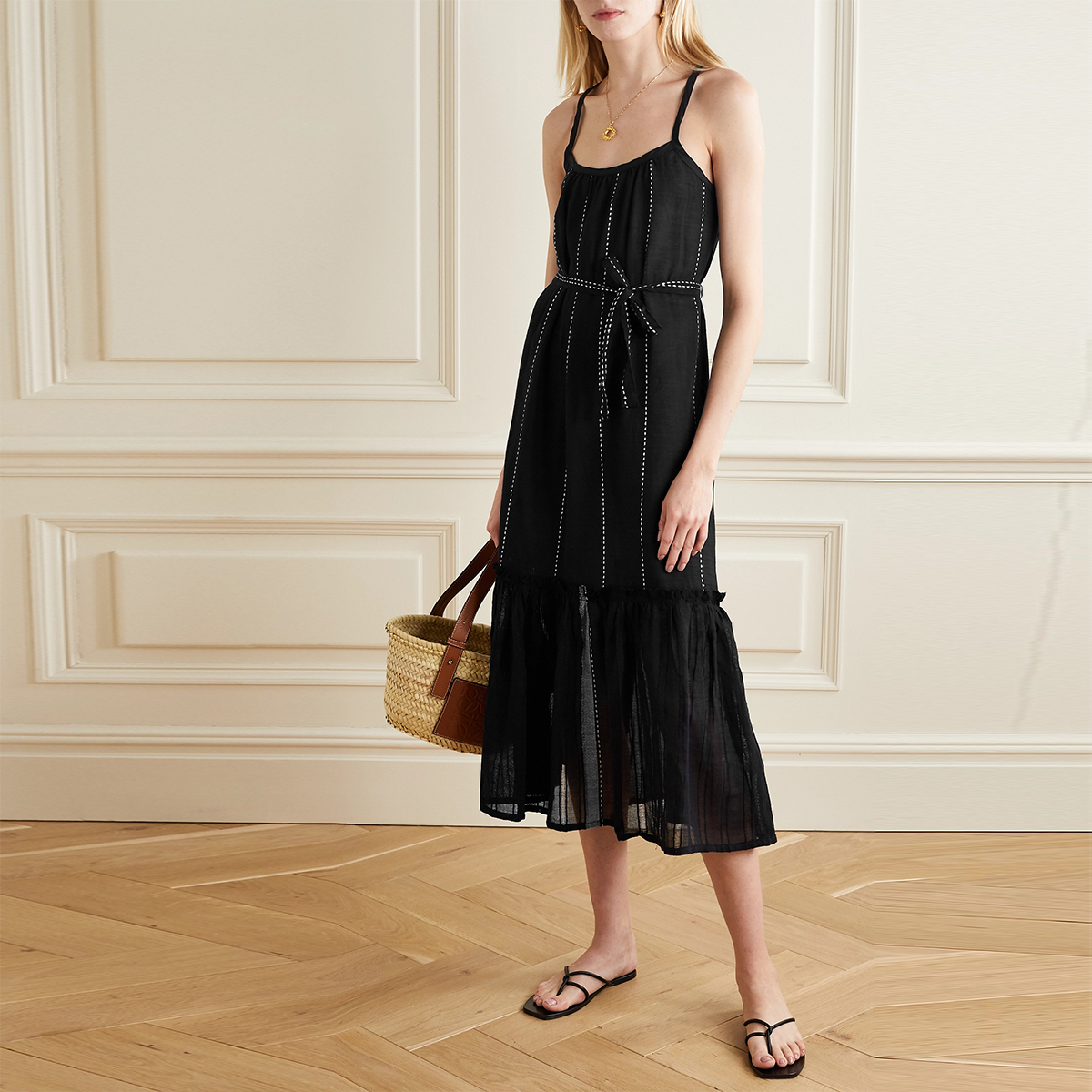
Seems like something that deserves a place in your closet for years.
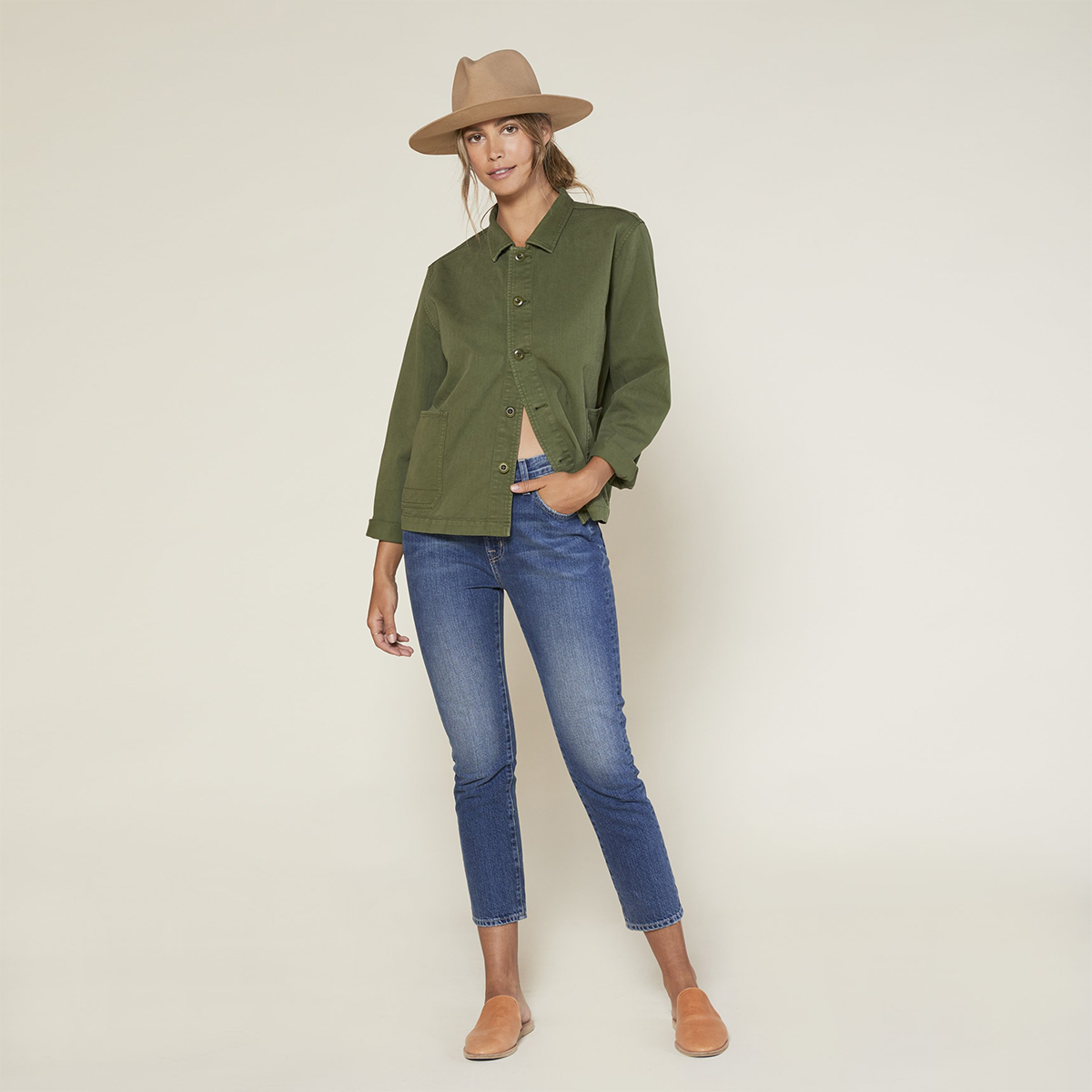
Constructed of 100% organic cotton and perfect for that leap from summer to fall.
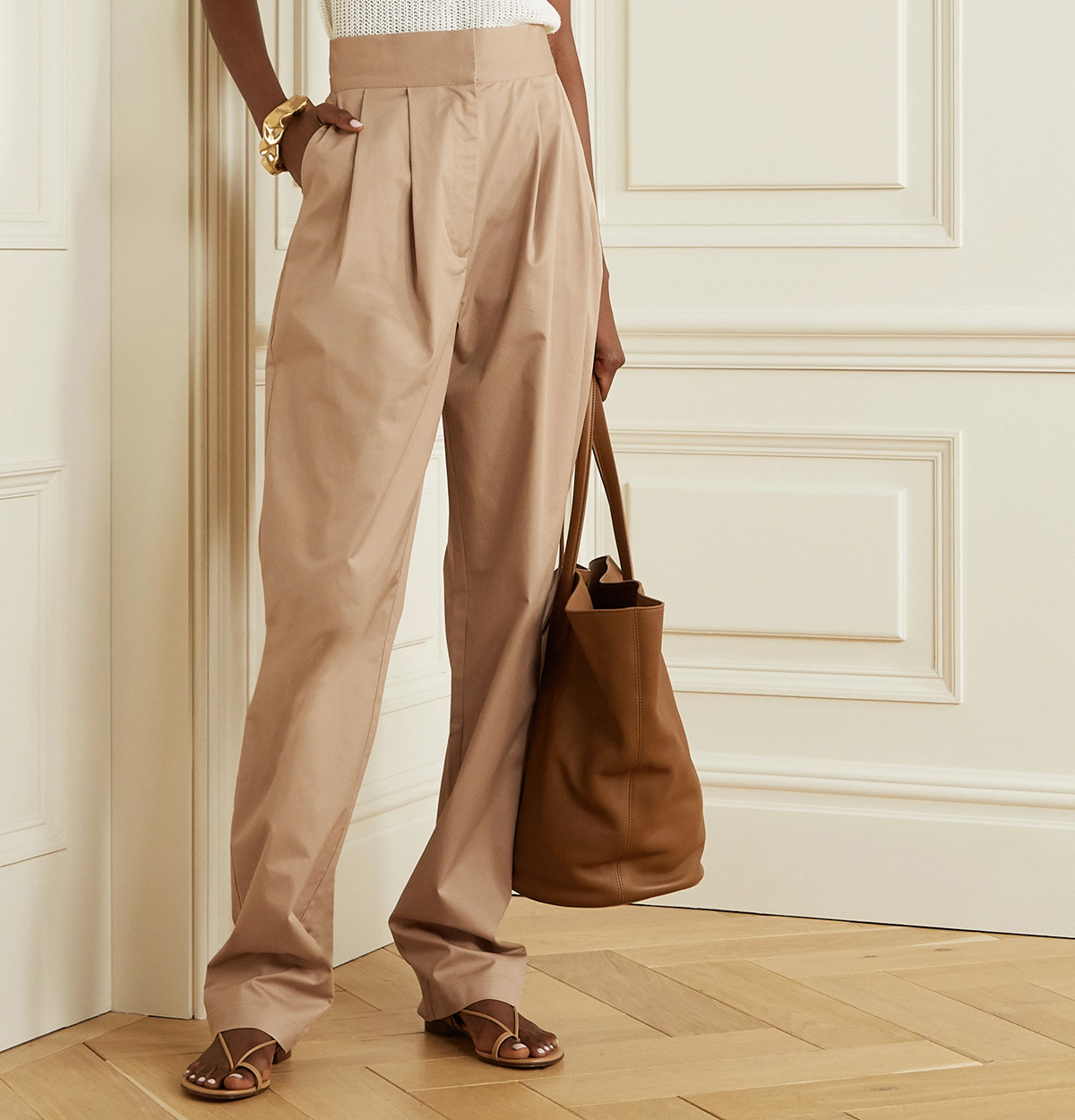
A hint of stretch (via elastane) makes these as comfortable as they are chic.
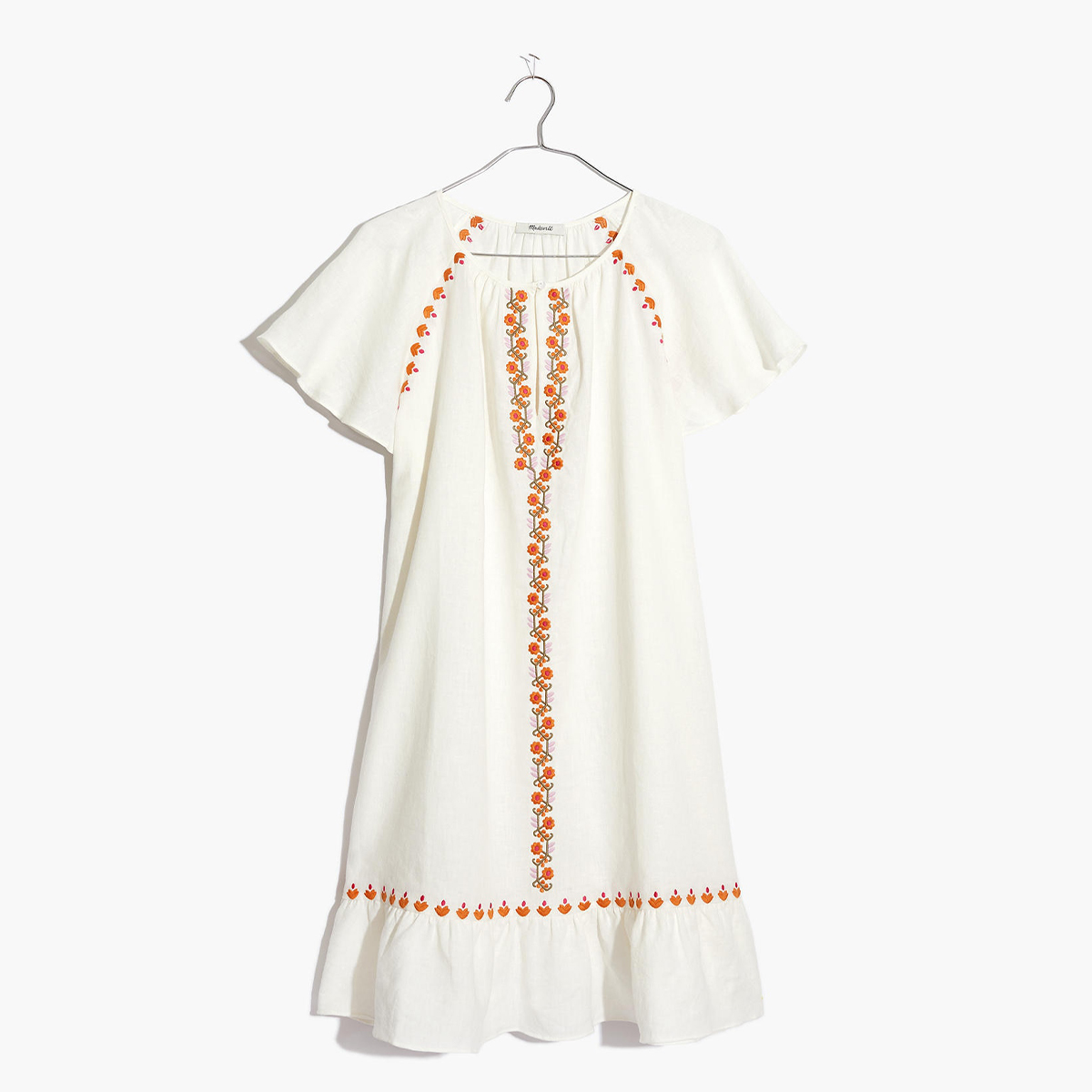
Another fun fact: Madewell is partnered with the Better Cotton Initiative to improve cotton farming globally.
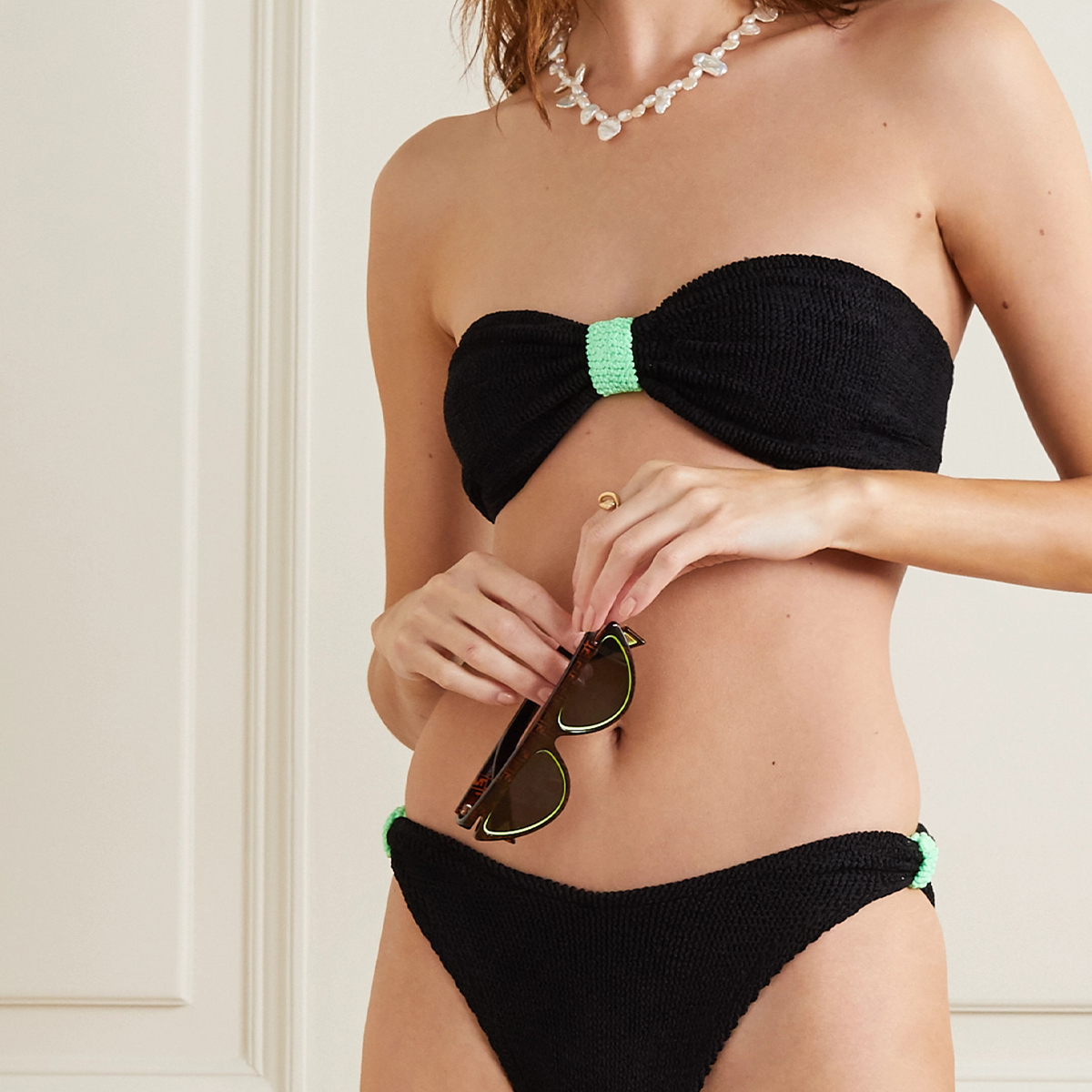
Each item that It swimwear brand Hunza G creates is handmade, which eliminates waste from excess fabric. Read all about its sustainability practices.
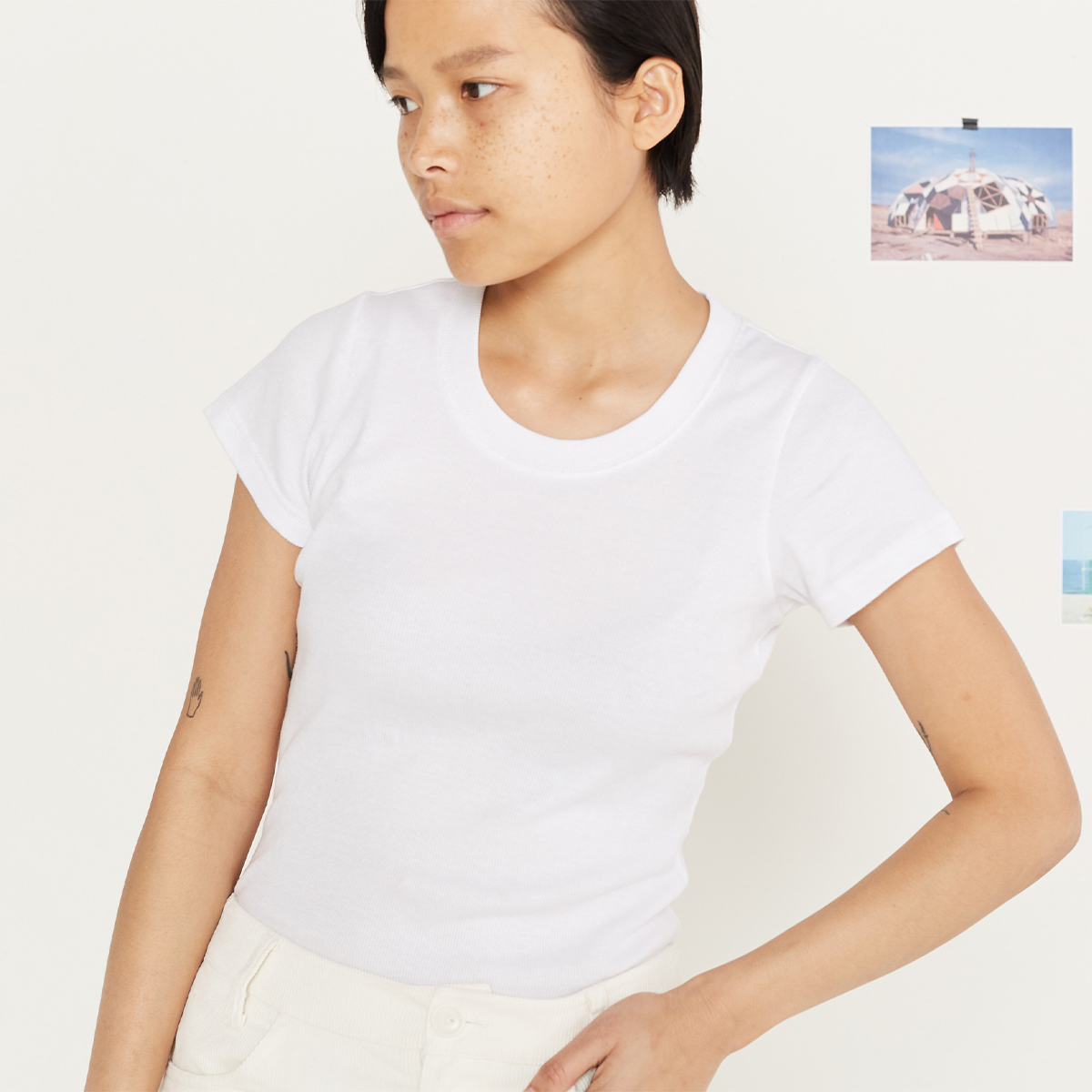
Entireworld, which has completely taken off this year, is very hands-on with the manufacturing of its products (more on that here).
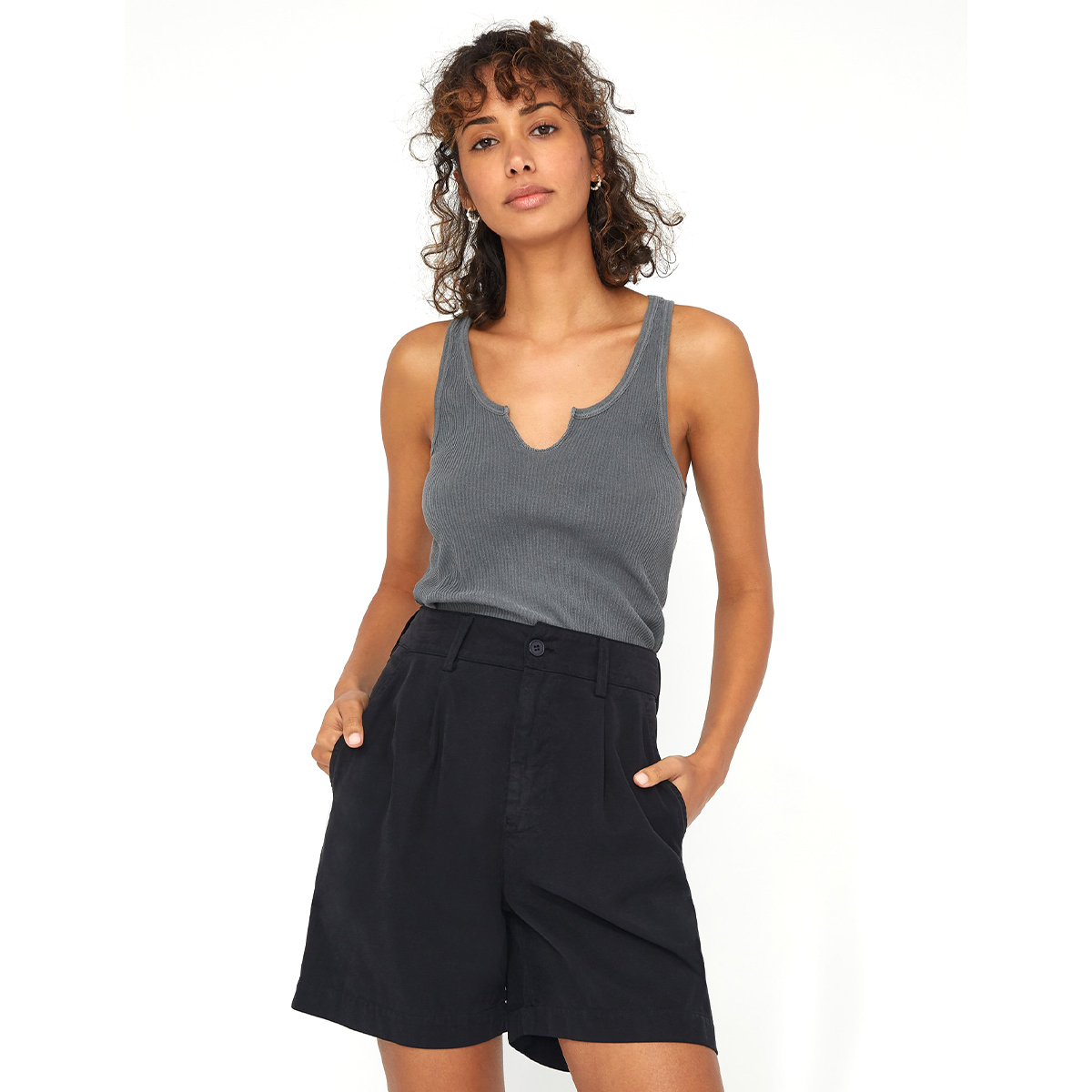
Made in downtown Los Angeles of cotton and Tencel, these shorts are timeless and on-trend at once.
Next up, three vintage-clothing experts give their best tips for shopping secondhand online.
Opening Images: @madeleinebuggekarlsen; Anna Routh Barzin

Allyson is a senior editor for Who What Wear. She joined the company in 2014 as co-founder Katherine Power's executive assistant and over the years has written hundreds of stories for Who What Wear. Prior to her career in fashion, Allyson worked in the entertainment industry at companies such as Sony Pictures Television. Allyson is now based in Raleigh, North Carolina, and is originally from Baton Rouge, Louisiana. She holds a BFA in theater arts. Her path to fashion may not have been linear, but based on the number of fashion magazines she collected as a child and young adult, it was meant to be.
